#and I have a special interest for the napoleonic era
Explore tagged Tumblr posts
Text
I fucking love presentations. If I had anyone to give presentations to, I’d give one about Gothic-revival architecture because dhsjsjhw it’s so pretty.
And I saw somewhere that Wayne manor was built in the mid-1800s and I just jumped for joy lmao.
I’m a huge fucking nerd, but so are y’all because you really want to see me make a bunch of floor plans so—
#I once made a fifty slide presentation for a class#I hated the teacher#and I have a special interest for the napoleonic era#so—#gothic revival#architecture#it just scratches my brain right#Wayne manor#bruce wayne#tim drake#dick grayson#jason todd#damian wayne#batman#robin
145 notes
·
View notes
Note
Temeraire?? Dragons?? Please do share what it is!
YAYYYY TEMERAIRE INFO DUMP TIME!!!
This series is historical fiction with fantasy in it! Combining all of my interests into one lol. It spans 9 books!
So, it takes place during the Napoleonic era, except dragons exist. In Europe, they're used for warfare, in the army. They have their very own aerial corps. How dragons work is that they hatch from eggs, and a captain is assigned to them. If the dragon accepts the captain, then they have a special bond. The dragon lives for a lot longer than a human, so it's a captain's job to get an heir for the dragon, so they're passed down through family lines.
The worldbuilding is super cool in this series, because the author explores how different cultures would treat dragons, from Europe, to Asia, to Africa to the Americas. It's really cool
The series focuses on captain William Laurence, of His Majesty's Navy. Originally, he's a sea captain, and the capture a French ship (because Napoleonic War). They find a dragon egg on there, which is a problem.
People (in Europe) see having a dragon as really bad, because a captain's bond with a dragon means they can't really interact with normal society, as the dragon comes first (they don't have enough dragons for war, so every one is valuable). And someone has to bond with the dragon because the egg is hatching, and they can't afford to waste it
So, after drawing straws, some guy on the ship (not Laurence) is made to try to bond. But when the dragon hatches, he doesn't like that guy! Laurence steps in, and he bonds with it instead, because of Honour and Duty (a recurring theme with him)
Now Laurence has to navigate transitioning from being a navy captain to an aerial one, when the culture is very different, alongside his dragon (Temeraire!!!!!!!! My beloved!!!!!!!!)
Then there's also the overhanging threat of Napoleon......... >:)
I really love this series a lot (as you can probably tell from the word vomit lmao). The worldbuilding, like I mentioned earlier, is super cool. The relationships in this book are so good too! There are so many excellent platonic relationships, between the dragons and their captains, as well as between the dragons themselves, and amongst the captains. And on top of all that, I get to nerd out about history with it!
The characters are also such well-fleshed out ones. Laurence goes through a lot of character development, but he is, at his core, the same man, who brings his sense of honour and duty to everything he does. He's the epitome of what the true English gentleman should be. Unfortunately for him, The government doesn't want his morals involved in their war :)
So yeah! Temeraire is great, and I can't recommend it enough
#life's mundanity#asks#quo 💜#temeraire#william laurence#if you wanna know more pls ask!! i love talking abt these books!!
28 notes
·
View notes
Text
also, to be that guy who's obsessed with the mythologisation of dr james barry for a second (it's been awhile on this blog I feel), I was interested in how casanova the tv show felt like a deliberate play with myth through the framing and the anachronisms and the lighting and the blocking and and and -- and how casanova himself is a heavily mythologised person, to the point that my partner asked me if he was real before we started
I feel like there's a similarity in ideas in dr james barry and casanova -- they were both adored and reviled, talked up and talked down depending on the agendas of whoever was spreading their tale, both with larger-than-life personas and adventures that seemed to teeter out in the later years as the traits that served them in youth (brashness, stubbornness, laissez-faire attitude around money, very specific ideas around how to live that didn't mesh with the laws and morals of society around them, a genius that in youth is considered prodigy-like... etcetc) (the details, of course, are different) became something that others were embarrassed about/didn't respond to as they aged and lost their connections
(also this is tv-show, so I don't know until I read the diaries, but they both seemingly had a manservant with whom they were very close/came with them on their various journeys)
casanova has the distinction of having a set of diaries that allow one to peruse primary material at ones leisure, so despite being someone whom one might only know from a particular re-telling or history book or even just as an idea, there is some power in being the main teller of his own story
which dr james barry of course doesn't really have. I feel like I read somewhere that he had more private letters that were lost at sea (which whenever I have that memory of having read that, I squint and wonder if I'm not participating in the mythologisation myself), but certainly the majority of what we think we know about him is either from others' opinions of him or just plain wrong/written after his death
in my head though, I think out of the many many biography-type movies and tv shows I've seen, the casanova show might be the closest to something I'd imagine for barry -- not for the same story, of course (the years of their lives also barely overlapped, but my special interest brain did note that early napoleonic and post-napoleonic era), but for the presentation. the idea of indulging in the fantasy, of the playing with anachronism, of an interaction with present (our present) and past. and mostly of fun
I think in a lot of the narratives around barry, it's often hard for me to see someone I think would live the life that he lived -- who had fun, who made deliberate, conscious choices that he enjoyed making, who was very passionate about his ideals and medicine and who -- like casanova -- was very much his own man. they're so often so preoccupied with ideas of deception and being found out and imagined projected cisgender anxieties. they often lack fun, and when they do insert their modern lens (in whatever time whatever thing about him was created), it's not to bridge the gap between us and him, to imagine who he'd potentially be if he lived now, it's to inject their personal ideas about what is morally correct to them onto a symbol
and yeah, at this point dr barry is more figure than man, as happens generally to historical people, especially those we remember for Highly Specific Things (like casanova, like barry), and I think it'd be interesting to really engage with that, to go deep into the world barry lived in, and to make him a figure who was cognizant of that world and the structures he was defying, who felt good about the choices he made
there's a certain idk... thematic overlap between the two figures. and that was something I really really enjoyed while watching this
#me: making something about dr james barry based on tenuous thematic overlaps in an imagined screenplay#and a 2005 aaptation of casanova? it's more likely than you think#im watching movies#im watching casanova#im watching david tennant movies#dr james barry#vague late-night thoughts#i feel like i could go into it more if i had more brain
13 notes
·
View notes
Text

Honestly the hardest part of deciding how Special Little Guy Status is achieved is who the fuck pays for it.
Though since the war is 100% over corporate interests, maybe soldiers get a little something extra if the ruling caste thinks they're cute, like dogs at the animal rescues that let you sponsor specific animals instead of general donations. And you never know what the person willing to drop $100/month on dogs they haven't even met like.
Like all of these soldiers can't possibly be equally stupid guys going into debt for Cool Shit (albeit, a good gun will also raise one's chances of Not Dying).
….then again, I am reminded of the Napoleonic era trooper who went into debt because he wanted to be a fancy horse boy (spent more money on kit and getting fined for misbehavior than he got paid over the same amount of time) and that this was not an abnormal problem to have.
This is a corpo sci-fi future, but also I will slam the entire Napoleonic era in there, I guess!!! Space Prussians are a tried and true visual trope anyhow xD
The government invites you to Sponsor-A-Soldier™! Your generous support unlocks customization options, give you unencrypted access to their personal communications, and allows you to to place bets on them in our Military Futures Market!
Mech combat might also be popular because it's a lot more appealing to watch on video, compared to a normal grunt getting turned into gibblets.
Also my friend tells me cosmetics are useful in real life casualty calculations, so I am gonna go Cosmetics Are Useful Actually™
That and a specialized mech is easier to spot in the fog of war, so it probably appeals to people watching for fun.
Being the Specialest Little Guy like.... you're both a target and intimidating AF, so good luck on having the skill set to deal with that.
12 notes
·
View notes
Note
Hi! Can I ask you some silly questions? (it's very long so I'm sorry in advance🥲):
I just started reading about the Napoleonic era, and one thing bothers me is how did the marshals, or generals, or whoever under Napoleon's court, got their titles. Every books I read they just said "...and he was made the Duke of [insert land]" and move on. I'm aware that they earned it through military achievements, but is there any specific requirements to be met here? Why some got even Prince titles and did they have any distinctions from Dukes? Also, did they have to do anything with the land they got their titles from?
Thank you for the question! I will try to answer to the best of my knowledge but I cannot stress enough that this knowledge will not go far. I’m not a historian, and when it comes to the details of politics and administration, it does not take long for me to be out of my depths. But maybe somebody else can add more information. Because I think the question is rather interesting, with Napoleon installing a new aristocracy so soon after the Revolution had taken care to abolish the old.
In general, the new nobility received their titles the same way the old nobility had: it was granted by the monarch, in Napoleon’s case through an imperial decree. So, the main requirement if you wanted a nobility title was to be in Napoleon’s good graces, or to be friends with somebody who was and could put in a good word for you. The marshals, generals, politicians, surgeons, bankers and whoever else was added to the bunch all received their »lettres patentes«, basically their certificate that stated they now were a duke, count or baron, and that was that.

The ranking, from highest to lowest, was: prince – duke – count ��� baron – chevalier.
I understand that at least some of the higher titles did come with some requirements. The family had to have a »majorat«, a set of properties, usually a castle, real estate and a certain amount of values, that had to be passed on in its entirety to the next title holder. As the marshals usually did not have the required amount of wealth, many castles and much money actually came from Napoleon.
In general, the titles »Duc de Frioul«, »Duc de Montebello« etc. were honorary titles, i.e., really only names. They did not give their owners any special rights in the city or region they were named after – except in some cases for the princes.
Berthier, prince de Neuchâtel (also prince de Wagram)
Bernadotte, prince de Ponte Corvo
Talleyrand, prince de Benevent
Unlike in the domains of the former HRE, in France the term »prince« could designate the sovereign head of a country (in the HRE, »Herzog«, = duke was the lowest title for a sovereign, with prince merely designating somebody who belonged to a ruling house, afaik). So, the princes above actually owned a (usually rather small but technically to some degree independent) principality in the places they were named after, that they could administer, give laws in etc.
I’m not sure if it was the same for the later princely titles:
Davout, prince d’Eckmühl
Masséna, prince d’Essling
Ney, prince de la Moskowa
As the places they are named after did not belong to Napoleon’s empire, I presume their principalities were formed elsewhere. In a similar way Napoleon in early 1810 briefly planned to scrap together a »principality of Raab« for his stepson Eugène that surely would not have been in Hungary.
And then there’s Lannes, who is always special 😊. I understand he actually was gifted with a principality in Poland, but somehow never bothered to go through the stupid paperwork to also receive the title of »prince de Sievers«.
In addition, there are also the imperial princes (members of the imperial family) and the grand dignitaries of the empire who also held a – non-hereditary! – title of prince while they were in office. But I’ll leave those aside. I find this all complicated enough.
Back to the marshals: Originally, only two of them were princes, Berthier and Bernadotte. As to the duke titles, they fall in two categories: some are named after a specific military feat of the title holder, and some are just generic.
Davout: Duc d’Auerstädt (needs no explanation, I guess)
Kellermann: Duc de Valmy (battle of Valmy 1792)
Lannes: Duc de Montebello (battle of Montebello 1800)
Lefebvre: Duc de Dantzig (siege of Danzig in 1807)
Masséna: Duc de Rivoli (battle of Rivoli 1796)
Ney: Duc d’Elchingen (battle of Elchingen 1805)
You could add to that number Marmont’s title of Duc de Raguse, because while Marmont did not win any specific battle, he resided in that city and governed the region, so it did have something to do with him.
Whereas, to my knowledge, most other marshals had no particular relation to the place they were named after. I’m not sure how the names were assigned to the newly declared dukes, maybe Napoleon just opened an Atlas or dropped a pencil onto a map. In the case of Soult (Duc de Dalmatie), that duke never as much as set a foot into Dalmatia. And he was highly disappointed not to have been named »Duc d’Austerlitz« or at least »Duc de Pratzen«, after his corps had contributed so much to the victory there.
Speaking of disappointments: Masséna in turn wanted to be named »Duc de Zurich«, as he rightfully saw that battle as his greatest military feat. But it seems Napoleon only handed out titles for battles that had some relation to him. When Masséna won Zurich, Napoleon unfortunately had been in Egypt, so … sorry, André.
That’s all I can come up with as of now – if you have more questions, please ask away! If I cannot answer, I’m pretty sure the marshalate fandom can. 😊
Thanks once more!
19 notes
·
View notes
Note
(History asks) 7, 14, 21!
Thank you for the ask my friend!
7. Favorite historical dressing, uniform or costume?
Oh goodness…. it’s hard to pick just one. However I’ll stick with what I know and settle for the 1787 pattern British Naval uniform.

I know a lot of people prefer the Napoleonic-era uniforms, which are a close second for me, but I love the late-18th century silhouette. The white lapels! The standing collar! The turned-back cuffs! For me this is the sweet spot between the relative minimalism of the early uniforms and the borderline exuberant use of lace in the 19th century.
14. Why you are interested in history?
Somehow I find that hard to explain even to myself... I think a part of me just likes stories, a part of me likes knowing how things happened, and a part of me just feels deeply drawn to the past, somehow more so than the present. I hope no one ever mistakes my love for my time period as anything other than love—I don’t embrace all the ideology that came from it, I don’t romanticize it as the good old days, I don’t want to live there. But I do love it, deeply, and I feel its presence in my daily life, if that makes any sense: sometimes I’ll look at a river bank and see it 250 years ago, I’ll inhale an autumn wind that feels distinctly antique. Knowing about it is something comforting to me, and I tend to think of my period in history as a very relevant part of my life (but I think that's all the special interest talking). I don’t claim to be one of those people born in the wrong century but I do feel like a part of my heart is there. If past lives were something I believed in, maybe I had one there, but whatever it is, I feel like I left a part of my soul there.
21. Favorite historical game?
That's actually such a great question and I wish I had more experience with which to answer—I do remember enjoying "game of graces." Simple concept, of course, but somehow catching stuff never gets old. I am choosing to interpret the question this way in the chance that this refers to a game *about* history simply because I wouldn’t have an answer otherwise…
12 notes
·
View notes
Text
Hello! You can call me Angelo:) I'm 18 and about to head into university to study a bachelor of arts major in history! This is my side blog that I'm hoping to start as an archive for my autism rambles (history++)! I cover mostly early American politics + some other eras/areas. I do not condone the historical figures' actions. They are real people whom have walked this earth. I simply find them extremely fascinating. Here are the historical figures I will mostly post about. Bold are special interests. - Alexander Hamilton - Gilbert du Motier, Marquis de Lafayette (tag will be shorted to Lafayette) - John Laurens & family - John André - George & Martha Washington - Thomas & Martha Jefferson - James & Dolley Madison - James Monroe - Nathan Hale - Benjamin Tallmadge - Napoleon II
fingers crossed that I finally figured out how tumblr markdown works after several years. anyways! love you guys, hopefully i can post my rambles and you guys will like them! edit: nvm tumblr markdown hates me fr
#amrev#american revolutionary war#1776#alexander hamilton#lafayette#john laurens#john andré#george washington#martha washington#thomas jefferson#martha jefferson#james madison#dolley madison#james monroe#nathan hale#benjamin tallmadge#napoleon ii
11 notes
·
View notes
Text

Anti-Christ: Two Thousand Years of the Human Fascination with Evil. By Bernard McGinn. Columbia University Press, 1994.
Rating: 4.5/5 stars
Genre: religious history, theology
Part of a Series? No.
Summary: McGinn demonstrates how Antichrist has often reflected the human need to comprehend the persistence of evil in the world, and examines how it has haunted popular imagination in both the form of individuals--such as Nero, Napoleon, and Saddam Hussein--and groups--Jews, heretics, Muslims.
***Full review below.***
Content Warnings: discussions of antisemitism and anti-Islamic belief
Since this book is non-fiction, my review is going to be structured a little differently than usual.
McGinn’s book is a historical survey, tracing the origins and evolution of the antichrist legend from ancient history to the modern day. Using a number or primary sources ranging from Biblical commentaries, political propaganda, letters, histories, plays, and poems, McGinn argues that antichrist has, over time, been used to embody various anxieties and theological views about evil and the end of the world. Though this book does not cite every appearance of the antichrist in literature, it selects a good representative body of work that shows how different historical eras contributed to the evolution of the antichrist legend.
I very much appreciated the wide scope of this book and was delighted by the way McGinn could cover such a broad historical scope yet still make each chapter feel incredibly detailed. It's very clear that McGinn has done a lot of research and has methodically presented what he feels best represents each era he writes about; as a reader, it's hard not to be incredibly impressed.
I think McGinn's strongest chapters are the early ones in which he covers Jewish literature and developing Christianity before the Middle Ages. This isn't to say his later chapters are bad, but I did get the sense the McGinn was writing in his wheelhouse early on, as those chapters felt much richer and varied in the way they approach history and literature. Later chapters also tend to focus almost exclusively on (Western) Europe, and while I understand that Europe is kind of a hotbed of Christian development and conflict, I was still a bit curious as to how non-European Christianity was handling the legend of the antichrist. Maybe Europe is a special case in that it took a particular interest, so I don't know how valid this critique is.
All that being said, I don't think I'd recommend this book to casual readers. Though the scope is large, McGinn doesn't waste time explaining much historical context, so you have to go in with at least a basic understanding of Christian history. This isn't to say this is a failing for McGinn; rather, I don't want to give the impression that this academic book is "pop history."
TL;DR: Anti-Christ is a fascinating survey of the history of the anti-Christ legend from about 50 BC to the late 20th centuries. Readers with a scholarly interest in the history of Christianity and theology will surely appreciate this book, and I can't recommend it enough for anyone wanting to do work on apocalypticism.
3 notes
·
View notes
Text

Bonjor mes amis! Ça va?
LadyAnthropology once again travels across the pond, this time to FRANCE!
Once again, I am studying abroad, this time in France. I have always loved the French language and culture. The country is beautiful, the language elegant, the food exquisite - or so I hear. I have spent the last year learning the French language and have the wonderful opportunity to spend over a month in France, learning and seeing all I can.
We start our trip in Paris, then we travel to Normandy, and then to La Rochelle. I have heard great things about this program and everything that is planned so it's safe to say I'm excited.
France is one of the first countries to pioneered fencing as a sport and have an interesting history with patriotism and nationalism. Their culture is thought to be as elegant and classy as their language. I have two recent exposures to anything related to France. One is the children's TV show Miraculous: Tales of Ladybug and Chat Noir, sometimes just called "Miraculous Ladybug". This show is set in Paris and follows the adventures of two teenagers as they transform into superheroes and fight supervillains while trying to balance their social and school life. It's originally broadcasted in France, so the language is originally French (which makes the NYC Special funny because the English dub of course has them all speaking English when the script clearly is supposed to show the language barrier between French and English speakers). The show first aired in 2015 and season 5 recently premiered in October of 2022. Another exposure that a lot of people probably had but don't realize is the recent live action re-make of The Little Mermaid. While the original 1989 animated version was set in/around Denmark (most popularly believed), this 2023 re-make was set in the Caribbean, the Caribbean was first colonized by Spain and quickly followed by France. This upcoming Fall, specifically in October/November, I will have the absolute pleasure of being involved in the musical Once on This Island, which is set in the French Antilles. It's called out in the musical that it's set in the 19th century, 4 generations after the Napoleon Era. I highly recommend checking it out, it's fun, beautiful, and entertaining.
There are other media like An American in Paris, Moulin Rouge!, Anastasia, and more.
If you're new, I have a previous blog titled: "A London Adventure!", chronicling my time in London, UK, last summer. That blog was a combination of a class requirement and myself wanting a way to look back on my travels. A blog is not required this time, so the posts will look a bit different as I don't have certain things, I need to put in them. I highly recommend checking it out, if you haven't already.
Here, I'm going to talk about my travels, places and things I have seen, food I've tried, and more. I will also briefly talk about what I learned in class that day (French is difficult to learn, it's a fast language and I have trouble with hearing).
I am going to do my absolute best to learn as much as I can. I've decided that when I apply to graduate programs, I will apply for both Theatre and for Cultural Anthropology. If I get accepted into a Cultural Anthropology program, I want to focus my attention on the Polynesian Islands and the Caribbean. The French colonized some of these regions and as such French is a language spoken on some of these islands in addition to their native language. My goal is to help create a bridge between the different cultures and people of the world and learning French is just one of the first steps towards that goal.
#studyabroad#travel#france#paris#normandy#larochelle#food#fun#student#french#language#culture#anthropology
1 note
·
View note
Note
Just gonna park your notes here too;

Now, let's see...
So about ranks, I am fully stealing the British Army ranking because I cannot figure this out on my own.
Hey, I stole theirs too!* That at least makes all this a little easier for me, US ranks (current and historical) got really quite complex to be honest. A side note I'll leave here is that the Brits tended to use 'Regiment-specific' ranks for quite a few units, as shown here;

It wouldn't be unusual for someone in Alyss's position, or unit, to get some form of odd title, if that's something you'd be interested in and wouldn't mind having to keep track of.
Moving onto 'special skills', your definitely in a better position to judge the utility of your fire magic than I am, but from we've talked about by now the specialist shock troop idea does make sense. I wanted to note, however, that the term 'fire team' and its associated unit has absolutely zero connection to the actual use of fire as a weapon, a la flamethrowers.
The story of fire teams are is, well, long. Very long, and also really hard to find sources for that I'm too confident in. So, I'm not going to talk too much about that, aside from briefly explaining how they operate. Basically, fire teams are a modern-ish invention that came about as a result of the invention of portable automatic weapons, which meant that fewer troops would be needed to give a unit a similar level of 'firepower'. This enabled these 'shrunken' units to theoretically act with greater independence from each other and their superior formations. Such increased lethality isn't the only precondition, however; a professional, trusted, and competent cohort of low-level junior leaders is key to making sure such units can work effectively towards a common objective instead of merely being defeated in detail, as such 'splintering' of a force, as opposed to concentrating it, risks.
Which, in a roundabout way, leads me to the next point here. Setting aside the almost inevitably aristocratic higher officer ranks, I think the part I'm looking at more is 'downstream', at the lower leadership ranks. Now, depending on a range of factors including whether you'd like to include Purchasing of Commissions as a prerequisite to officership, how aristocratic junior officer ranks might be can still vary without making the upper brass any less blue blooded, though noble-heavy junior officers are still likely. This being the WW1 era, by the way, the example of Guards units with royal affiliations being particularly heavy concentrations of esteemed noble sons might be something worth looking at, if you're curious.
How this connects to the 'fire team' bit could be expressed in terms of how 'centralised / decentralised' authority in the Ritanian Army is. In a simple sense, kilometres long Napoleonic era line formations were generally centralised under their general's authority, while the small trench raiding parties of WW1 were decentralised, given the freedom to move, fight, and bypass where their immediate leaders saw fit as long as they kept their superior's instructions in mind. Decentralisation allows for flexibility, and for decisions to be made quickly and in accurate response to the situation on the ground, but relies on junior personnel being empowered and trained to take on this responsibility, and senior leaders trusting them enough to not micromanage. What, exactly, the 'average' Ritanian NCO, or those specialists like Alyss, would actually be able to do on their own, then, depends on this sort of cultural environment built up within their respective corners of the Army.
And there, then, we can segway to your question;
So what are the actual duties of a sergeant? What would they do in the field, in battle, during rest periods, ect?
This is, well... a long story. Two stories, technically; the 'battlefield' duties of a Sergeant / their near equivalents, and their 'out of battle' job.
Oh, and when I say near equivalents, I meant this;

There's some subtle differences between how the US and UK do it (looking at you American-style Warrant Officer), and I'd imagine the army buddies you mentioned would be referring to the former. This could lead to a tangent about the difference between a Junior and Senior NCO, but I'm gonna save myself the effort and use this excerpt from this Military dot com article on enlisted ranks in the current US Army, which I can recommend.

The quick answer here as I understand it is between NCOs who lead junior enlisted, and NCOs who 'advise' officers / headquarters, with the caveat that 'advising' a green-as-grass lieutenant is a bit different that doing the same for a hopefully seasoned major.
I'll start by briefly explaining the historical duties given to sergeants in around the 19th Century and going into WW1, then give an overview of their current duties where they differ. You can pick and choose where you see fit.
Starting with that earlier time period, the combat duty's of NCOs were a lot more limited than in more modern militaries. Barring certain specific contexts which placed a premium on small-unit actions, sergeants and their immediate junior officers would primarily be expected to make damn sure that their senior commanders' orders were carried out by their own units, the 'platoons' within a larger 'regiment' for example. This being the era of muzzle-loaders, this often involved minding the drill (loading, firing, kneeling, etc.) and dressing (position in the line) of their soldiers, keeping them separate and preventing any sudden breaks in morale under intense pressure. This is hard work, especially under fire, but is arguably simpler than more modern NCOs and junior officers, since a platoon of a few dozen won't matter much individually in the face of, say, the amassed ten thousand charging Imperial Guard at Waterloo.
It is, however, outside of battle and 'in camp' that the existence of long serving NCOs makes itself invaluable. And note the emphasis on 'long serving' here, and 'professional' above; NCOs, being the senior most enlisted there are with at least a decade of service under the belt, serve as repositories of institutional knowledge built up over years of a military's experience, and the primary means by which that knowledge and culture are inculcated within new recruits once they join their units.
Many things changed between the era of gunpowder and guided bombs, but this principle has largely remained. From basic weapon handling and safety discipline to how to properly pack a sack, sergeant simply know stuff, and its much easier to have them on hand to train the next generation face-to-face, constantly, than to be forced to constantly relearn and relearn the same lessons. Compare this to the (arguably simplified) 'Soviet bloc' system of conscript armies with conscripted NCOs, who served only as long as their peers did. Their sergeants couldn't hope to live up as 'role models' for their ostensibly junior peers because it's not like they necessarily knew much better, or had the accumulated confidence and credibility to carry out this task.
In addition to the 'functional' knowledge that NCOs carry on, they also play a key role in maintaining an Army's professional culture and values. This isn't always a good thing, mind you, but the whole concept of 'esprit de corp' relies on a close knit, shared identity across the 'community' that any military unit fundamentally is. NCOs, being both 'fellow soldiers' and respected figures of authority, are the 'face' of that identity most apparent to their junior soldiers, and how they carry themselves can do a lot to shape their morale and attitudes towards the institution. To cap this portion off, the most senior NCOs, those who've moved past 'soldier leadership' to positions in proximity to officers, will have the additional duty of making damn sure their commanders are made well aware of enlisted concerns and needs in their own planning, essentially acting as the 'voice' of these soldiers amongst the officer corps.
Finally, I'll turn to the more specific tasks of modern NCOs. In addition to the 'camp' tasks outlined above, the modern Sergeant has been given a degree of responsibility well beyond anything their historical counterpart would have had. This ties in with what I mentioned earlier about the trend towards 'decentralised' warfare, where ever smaller units get access to ever larger 'capabilities', although much more constant factors such as complex terrain and 'unconventional' forms of warfare have also had a part to play.
These days, most modern armies consider the lieutenant-led platoon to be the smallest unit truly capable of independent action. This would almost never have been considered possible back in the day, but the structure of modern platoons is designed to incorporate a fairly wide variety of weapon systems into its organisation. Since a lot more focus gets placed on the level of unit immediately above an NCO's jurisdiction, instead of several tiers higher, their individual skill and leadership counts for a lot more, both acting in concert with the whole platoon and when broken off to act independently from their officer lieutenant, a possibility historical armies would barely countenance.
One last note on this. Going back again to the senior NCOs, who as above aren't going to be leading troops in battle, within a unit's headquarters I've broadly gotten the sense that a lot of their duties revolve around keeping things running smoothly in the rear, such as by overseeing casualty management and the resupply of fighting units at the front. Also, since they're already at the HQ, assuming basically every other officer present is dead it might fall to them to take charge and get a hold on things. By that point, though, the unit in question is probably a little beyond salvaging.
The last thing I have to say here is a small correction to what you've mentioned in your notes, which I'm a little curious about since you said they were brought up by someone from the Army.
You see, a 'squad'...

is a very small unit, and for what it's worth the Brits call it a 'section' usually. Officers don't lead squads, with even the junior most officer, a Second Lieutenant in the UK, commanding a platoon; instead, squads are commanded by junior NCOs, in this case a US Army Staff Sergeant.
Captains are, more or less, the senior-most of the 'kinda junior' officers, below the so called 'Field Grades' which start at Major (like Goyan!).

They command Companies, which are usually two legs up from a Squad in any usage I'm aware of. You would be correct in saying that there is an NCO present to advise them, though, and that article I mentioned earlier phrases their relationship this way;

Which about corroborates your description. For a little context, the age and seniority difference between a Captain and their 'company sergeant' is probably less substantial than that between a Lieutenant and their 'platoon sergeant', and as far as 'book smart' goes that's mostly in terms of the requirement for a college degree to commission in the US and the fact they'll have attended numerous officer schools by the time they take command. NCOs also have their own schools, of course, but you're right that a lot of what they have to offer is 'accumulated experience on the job'.
And with that... I need lunch.
Alright I have been working on this off and on for months. I need help. I want to decide what rank Alyss had in the Ritanian Army because I have a scene in mind but it depends on her rank how it goes. So, Alyss is from the working class, but has considerably more education than the average person. She enters the army with some weapons training, primarily shooting and polearms from the Church, she can read, write, and do math easily, and she has fire magic which is basically like martial arts training. I am going to assume that she enlists as just a private, but probably gets promoted at least once in the two years of fighting she is involved with. Would it be reasonable for her to be promoted early on to Lance Corporal for her clerking abilities, and possibly up to Corporal? I have no sense for how these things work. You are the expert I know.
HAHAHAHahahahaha yesss!!!
You, have come to the right blog!
Now, I foreshadowed a pretty hefty worldbuilding process to you earlier, but just in case things get in the way of that rabbit hole I wanted to come up with a short-ish, succinct-ish answer to your immediate question. That question being, as far as I can tell;
What 'rank' within the Ritanian Army would Alyss, a skilled commoner, attain by the end of a military career featuring at least 2 years of wartime combat service?
The answer that you seem to have now is 'Lance Corporal, maybe Corporal', and my reply would be that said ranks, or more accurately their equivalents in the Ritanian Army as you'd have it, are absolutely possible, given the details I outlined above.
Truth be told, there's a lot potentially going in favour of pushing her towards 'seniority' in general.
Don't You Know There's A War On?
If there's one thing that's sure to bring about rapid and unexpected career progression in the military, it's war!
Honestly, this accounts for about 90% of why I'm so firm in approving the ranks you've put forwards; if Alyss is even remotely competent, and lucky, there's a non-zero chance she attains both those ranks within the first year. (Lance) Corporal isn't exactly the big leagues, and if the pre-War soldiers holding those ranks in Alyss's unit get bumped off and she shows any talent at all, you could absolutely see her get field promoted to fill the slots mid-battle, albeit within a much-reduced unit. After that, it's a matter of not joining your predecessors.
On this topic, by the way, I recalled a lovely piece of historical trivia that had much to do with young bucks hungry for promotion, this time in the Royal Navy;

(She Has A) Special (Set Of) Skills
A subject I'd absolutely love to delve into the is the broad increase in the ratio of specialists and special skills VS 'the general infantry' in most militaries as they progress technologically. How exactly specialists function in Ritania depends on a lot of things, its state of technology (and magic!) among them, but a general rule is that the fewer people exist in the relevant 'pool' of potential people who could be promoted, the more likely specific (competent) person in it is to get promoted.
If, for example, the Army decides it needs to rapidly expand its corps of 'whatever Alyss's speciality is' (flame-troops, or something, right?) then all the people already in it might get bumped up and given the authority to whip new recruits into shape. On the other hand, if this is the sorta job that gets an above average number of people killed, then the rate of career progression for those still alive is correspondingly faster.
Miscellaneous
Outside of these two factors, there's a whole grab basket of stuff that might potentially work in Alyss's favour. One of them, again, is how relatively low the ranks you specified are; they're called 'junior Non-Commissioned Officers' for a reason, after all. To be quite honest, in two years and with my pretty optimistic guess at her competence I'm surprised she didn't make Sergeant (or equivalent). For comparison, here's something I found on the - peacetime! - US Army for promotion to Corporal, which for them is the 4th enlisted rank from the bottom.

A bit over two years in a 'modern' style of Army, and given what I mentioned above I think cutting down the timeline would be perfectly believable.
There's also some of her pre-Enlistment traits that you brought up. I'm a little suspect on whether most of them would impact her rate of advancement much, since they appear more likely to influence her actual vocation upon joining rather than what happens once she has. After that, a lot of them are likely to never be used or trained on, though that depends on just how specialised the Ritanian Army actually is, which is... something I'd love to talk about.
Literacy, then, might help, but that depends on both how prevalent literacy is across society, and whether or not the duties expected of an 'enlisted leader' would need that skill. Off the top of my head, I recall that one reason for aristocratic officer corps was that literacy was concentrated to that class only; if so few other 'rank' soldiers could be expected to be literate, an Army might just not bother to create pathways to allow them to get into a position where literacy was needed. Of course, if the case is not that extreme, but still one where literacy is limited, then it'd be the sort of trait that a professional Non-Commissioned Officer would need, and thus one looked for in troops. All of that, then, is one way in which the character and substance of a military is heavily dependent on the society that it exists within, a subject beyond the purview of this ask!
Though I will say, I can't imagine 'clerking' working out well for fast promotion, unless you meant 'administrative and organisational talent' more than 'actually being a full time adjudant or staff officer'. That whole track of the profession of arms is a crucial and fascinating one, but you don't often here tales of glory or heroic career arcs coming from those quarters; 'desk jobs' don't get half as much love as they deserve.
The Unknown... For Now!
With my answer in the 'Affirmative!' already given and explained, right now I'd just love to get into the weeds of all this even deeper and worldbuild the everloving crap out of the Ritanian Army and its career advancement process. Here's two questions I came up with that might help with articulating the actual promotion system Alyss would be going through;
Who gets to decide, and 'write down', a promotion? Are they exclusively processed by the Army's central personnel department, handed out by senior or direct commanders of a certain rank and office, or something with inputs from both? At higher ranks, it's not unusual for civilian leadership to oversee this process, but the average enlisted doesn't need to care about that.
What does it take to 'get' promoted? More specifically, is it a subjective process dependent on specific individuals decisions and perspectives, or a rigorous, standardised process with inflexible rules? Keeping in mind, of course, that it is ultimately people who execute such rules.
To end off this answer, which might I add was an absolute joy to write, I'd like to ask for two clarifications;
First of all, do you have a rank structure in mind already? Your use of Lance Corporal and Corporal suggested something pretty in line with how it's been IRL since Napoleon, but couldn't hurt to ask. I'm a bit of a sucker for unusual rank structures - screwing around with the Officer-Enlisted distinction always seemed cool, but as I mentioned above that'd be a whole discussion for another time.
Secondly, and on that topic... would Alyss have made a good officer, or in fact, been able to become one? Taking it very loosely, that is. Is Ritanian officership class-restricted? Literacy, like I mentioned, is the sort of quality that is exceptionally beneficial for long-service leaders. Of course, there might be a whole host of reasons personal and external which make this particular question moot - in which case, I'd love to hear them!
And with that... I'm done!
#god this took most of my morning to write but I promised myself I wouldn't waste time getting to this#hope it wasn't too confusing; a lot of stuff here is hijacked from US focused sources so when it comes to the specific ranks in Ritania#ask me back and I'll try and help untangle the rough conversions#Also! I skipped the part about confirming and agreeing on promotions part because it didn't feel *too* important#and you're right that an active war makes it complicated#but#it's still something I'm interested in so I'll say a few words on it here#basically the difference between a centralised and decentralised system reflects the degree of centralisation of the Army as a whole#many societies would much rather not give soldiers and lower level commanders any form of incentive for loyalty to individual generals#than to the centralised state (for 'why' see feudalism and warlords)#at the same time allowing individual commander's discretion can go a good way to enhancing a unit's esprit de corps#which is exactly what the previous point was about avoiding in a roundabout way#this centralisation issue also extends into the recruiting system#on the one hand a modern US Army soldier from any state is about likely to get posted to any other state as their own#and to meet comrades from across the country in their unit#on the other hand is the British regimental system with highly localised recruitment aimed at connecting whole regional communities#to military service (see Pals Battalions for this and why it's not always great)#the latter method might also give you the sorts of ethnically distinct units you occasionally see in history esp. ancient warfare#or things like the Gurkhas or the hoohah surrounding Scottish Highlander regiments#okay that's it bye!!!
5 notes
·
View notes
Text
Anonymous asked: I enjoyed reading your posts about Napoleon’s death and it’s quite timely given its the 200th anniversary of his death this year in May. I was wondering, because you know a lot about military history (your served right? That’s cool to fly combat helicopters) and you live in France but aren’t French, what your take was on Napoleon and how do the French view him? Do they hail him as a hero or do they like others see him like a Hitler or a Stalin? Do you see him as a hero or a villain of history?
5 May 1821 was a memorable date because Napoleon, one of the most iconic figures in world history, died while in bitter exile on a remote island in the South Atlantic Ocean. Napoleon Bonaparte, as you know rose from obscure soldier to a kind of new Caesar, and yet he remains a uniquely controversial figure to this day especially in France. You raise interesting questions about Napoleon and his legacy. If I may reframe your questions in another way. Should we think of him as a flawed but essentially heroic visionary who changed Europe for the better? Or was he simply a military dictator, whose cult of personality and lust for power set a template for the likes of Hitler?
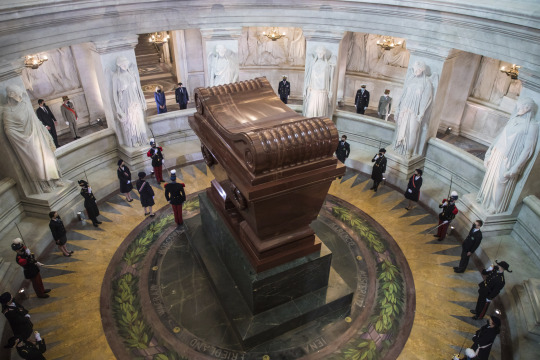
However one chooses to answer this question can we just - to get this out of the way - simply and definitively say that Napoleon was not Hitler. Not even close. No offence intended to you but this is just dumb ahistorical thinking and it’s a lazy lie. This comparison was made by some in the horrid aftermath of the Second World War but only held little currency for only a short time thereafter. Obviously that view didn’t exist before Hitler in the 19th Century and these days I don’t know any serious historian who takes that comparison seriously.
I confess I don’t have a definitive answer if he was a hero or a villain one way or the other because Napoleon has really left a very complicated legacy. It really depends on where you’re coming from.
As a staunch Brit I do take pride in Britain’s victorious war against Napoleonic France - and in a good natured way rubbing it in the noses of French friends at every opportunity I get because it’s in our cultural DNA and it’s bloody good fun (why else would we make Waterloo train station the London terminus of the Eurostar international rail service from its opening in 1994? Or why hang a huge gilded portrait of the Duke of Wellington as the first thing that greets any visitor to the residence of the British ambassador at the British Embassy?). On a personal level I take special pride in knowing my family ancestors did their bit on the battlefield to fight against Napoleon during those tumultuous times. However, as an ex-combat veteran who studied Napoleonic warfare with fan girl enthusiasm, I have huge respect for Napoleon as a brilliant military commander. And to makes things more weird, as a Francophile resident of who loves living and working in France (and my partner is French) I have a grudging but growing regard for Napoleon’s political and cultural legacy, especially when I consider the current dross of political mediocrity on both the political left and the right. So for me it’s a complicated issue how I feel about Napoleon, the man, the soldier, and the political leader.
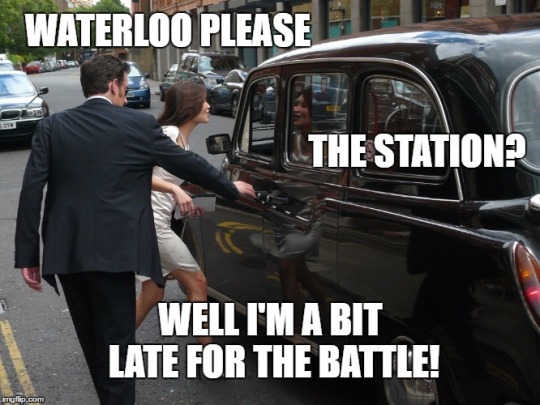
If it’s not so straightforward for me to answer the for/against Napoleon question then it It’s especially true for the French, who even after 200 years, still have fiercely divided opinions about Napoleon and his legacy - but intriguingly, not always in clear cut ways.
I only have to think about my French neighbours in my apartment building to see how divisive Napoleon the man and his legacy is. Over the past year or so of the Covid lockdown we’ve all gotten to know each other better and we help each other. Over the Covid year we’ve gathered in the inner courtyard for a buffet and just lifted each other spirits up.
One of my neighbours, a crusty old ex-general in the army who has an enviable collection of military history books that I steal, liberate, borrow, often discuss military figures in history like Napoleon over our regular games of chess and a glass of wine. He is from very old aristocracy of the ancien regime and whose family suffered at the hands of ‘madame guillotine’ during the French Revolution. They lost everything. He has mixed emotions about Napoleon himself as an old fashioned monarchist. As a military man he naturally admires the man and the military genius but he despises the secularisation that the French Revolution ushered in as well as the rise of the haute bourgeois as middle managers and bureaucrats by the displacement of the aristocracy.
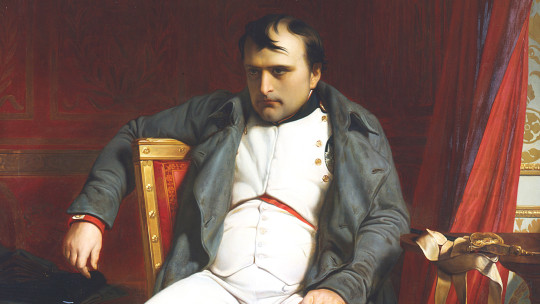
Another retired widowed neighbour I am close to, and with whom I cook with often and discuss art, is an active arts patron and ex-art gallery owner from a very wealthy family that came from the new Napoleonic aristocracy - ie the aristocracy of the Napoleonic era that Napoleon put in place - but she is dismissive of such titles and baubles. She’s a staunch Republican but is happy to concede she is grateful for Napoleon in bringing order out of chaos. She recognises her own ambivalence when she says she dislikes him for reintroducing slavery in the French colonies but also praises him for firmly supporting Paris’s famed Comédie-Française of which she was a past patron.
Another French neighbour, a senior civil servant in the Elysée, is quite dismissive of Napoleon as a war monger but is grudgingly grateful for civil institutions and schools that Napoleon established and which remain in place today.
My other neighbours - whether they be French families or foreign expats like myself - have similarly divisive and complicated attitudes towards Napoleon.

In 2010 an opinion poll in France asked who was the most important man in French history. Napoleon came second, behind General Charles de Gaulle, who led France from exile during the German occupation in World War II and served as a postwar president.
The split in French opinion is closely mirrored in political circles. The divide is generally down political party lines. On the left, there's the 'black legend' of Bonaparte as an ogre. On the right, there is the 'golden legend' of a strong leader who created durable institutions.
Jacques-Olivier Boudon, a history professor at Paris-Sorbonne University and president of the Napoléon Institute, once explained at a talk I attended that French public opinion has always remained deeply divided over Napoleon, with, on the one hand, those who admire the great man, the conqueror, the military leader and, on the other, those who see him as a bloodthirsty tyrant, the gravedigger of the revolution. Politicians in France, Boudon observed, rarely refer to Napoleon for fear of being accused of authoritarian temptations, or not being good Republicans.
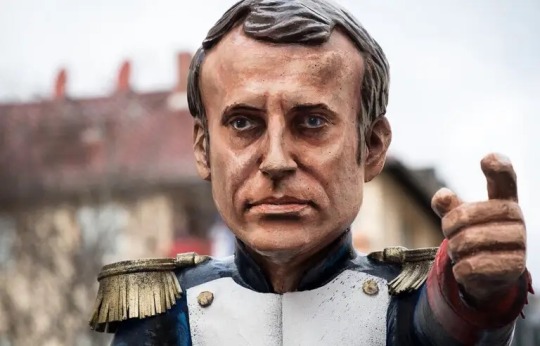
On the left-wing of French politics, former prime minister Lionel Jospin penned a controversial best selling book entitled “the Napoleonic Evil” in which he accused the emperor of “perverting the ideas of the Revolution” and imposing “a form of extreme domination”, “despotism” and “a police state” on the French people. He wrote Napoleon was "an obvious failure" - bad for France and the rest of Europe. When he was booted out into final exile, France was isolated, beaten, occupied, dominated, hated and smaller than before. What's more, Napoleon smothered the forces of emancipation awakened by the French and American revolutions and enabled the survival and restoration of monarchies. Some of the legacies with which Napoleon is credited, including the Civil Code, the comprehensive legal system replacing a hodgepodge of feudal laws, were proposed during the revolution, Jospin argued, though he acknowledges that Napoleon actually delivered them, but up to a point, "He guaranteed some principles of the revolution and, at the same time, changed its course, finished it and betrayed it," For instance, Napoleon reintroduced slavery in French colonies, revived a system that allowed the rich to dodge conscription in the military and did nothing to advance gender equality.
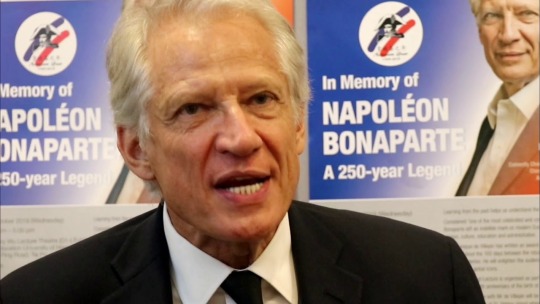
At the other end of the spectrum have been former right-wing prime minister Dominique de Villepin, an aristocrat who was once fancied as a future President, a passionate collector of Napoleonic memorabilia, and author of several works on the subject. As a Napoleonic enthusiast he tells a different story. Napoleon was a saviour of France. If there had been no Napoleon, the Republic would not have survived. Advocates like de Villepin point to Napoleon’s undoubted achievements: the Civil Code, the Council of State, the Bank of France, the National Audit office, a centralised and coherent administrative system, lycées, universities, centres of advanced learning known as école normale, chambers of commerce, the metric system, and an honours system based on merit (which France has to this day). He restored the Catholic faith as the state faith but allowed for the freedom of religion for other faiths including Protestantism and Judaism. These were ambitions unachieved during the chaos of the revolution. As it is, these Napoleonic institutions continue to function and underpin French society. Indeed, many were copied in countries conquered by Napoleon, such as Italy, Germany and Poland, and laid the foundations for the modern state.
Back in 2014, French politicians and institutions in particular were nervous in marking the 200th anniversary of Napoleon's exile. My neighbours and other French friends remember that the commemorations centred around the Chateau de Fontainebleau, the traditional home of the kings of France and was the scene where Napoleon said farewell to the Old Guard in the "White Horse Courtyard" (la cour du Cheval Blanc) at the Palace of Fontainebleau. (The courtyard has since been renamed the "Courtyard of Goodbyes".) By all accounts the occasion was very moving. The 1814 Treaty of Fontainebleau stripped Napoleon of his powers (but not his title as Emperor of the French) and sent him into exile on Elba. The cost of the Fontainebleau "farewell" and scores of related events over those three weekends was shouldered not by the central government in Paris but by the local château, a historic monument and UNESCO World Heritage site, and the town of Fontainebleau.
While the 200th anniversary of the French Revolution that toppled the monarchy and delivered thousands to death by guillotine was officially celebrated in 1989, Napoleonic anniversaries are neither officially marked nor celebrated. For example, over a decade ago, the president and prime minister - at the time, Jacques Chirac and Dominque de Villepin - boycotted a ceremony marking the 200th anniversary of the battle of Austerlitz, Napoleon's greatest military victory. Both men were known admirers of Napoleon and yet political calculation and optics (as media spin doctors say) stopped them from fully honouring Napoleon’s crowning military glory.
Optics is everything. The division of opinion in France is perhaps best reflected in the fact that, in a city not shy of naming squares and streets after historical figures, there is not a single “Boulevard Napoleon” or “Place Napoleon” in Paris. On the streets of Paris, there are just two statues of Napoleon. One stands beneath the clock tower at Les Invalides (a military hospital), the other atop a column in the Place Vendôme. Napoleon's red marble tomb, in a crypt under the Invalides dome, is magnificent, perhaps because his remains were interred there during France's Second Empire, when his nephew, Napoleon III, was on the throne.
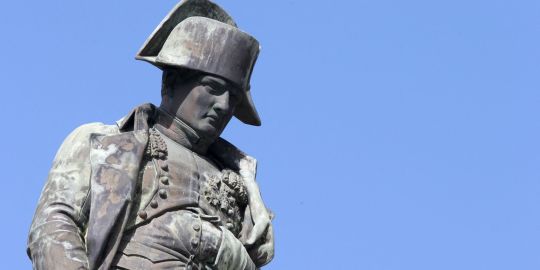
There are no squares, nor places, nor boulevards named for Napoleon but as far as I know there is one narrow street, the rue Bonaparte, running from the Luxembourg Gardens to the River Seine in the old Latin Quarter. And, that, too, is thanks to Napoleon III. For many, and I include myself, it’s a poor return by the city to the man who commissioned some of its most famous monuments, including the Arc de Triomphe and the Pont des Arts over the River Seine.
It's almost as if Napoleon Bonaparte is not part of the national story.
How Napoleon fits into that national story is something historians, French and non-French, have been grappling with ever since Napoleon died. The plain fact is Napoleon divides historians, what precisely he represents is deeply ambiguous and his political character is the subject of heated controversy. It’s hard for historians to sift through archival documents to make informed judgements and still struggle to separate the man from the myth.
One proof of this myth is in his immortality. After Hitler’s death, there was mostly an embarrassed silence; after Stalin’s, little but denunciation. But when Napoleon died on St Helena in 1821, much of Europe and the Americas could not help thinking of itself as a post-Napoleonic generation. His presence haunts the pages of Stendhal and Alfred de Vigny. In a striking and prescient phrase, Chateaubriand prophesied the “despotism of his memory”, a despotism of the fantastical that in many ways made Romanticism possible and that continues to this day.
The raw material for the future Napoleon myth was provided by one of his St Helena confidants, the Comte de las Cases, whose account of conversations with the great man came out shortly after his death and ran in repeated editions throughout the century. De las Cases somehow metamorphosed the erstwhile dictator into a herald of liberty, the emperor into a slayer of dynasties rather than the founder of his own. To the “great man” school of history Napoleon was grist to their mill, and his meteoric rise redefined the meaning of heroism in the modern world.
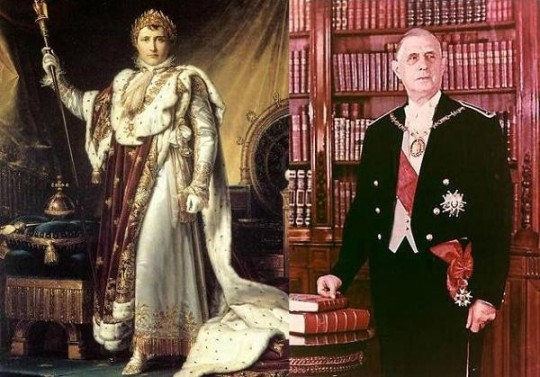
The Marxists, for all their dislike of great men, grappled endlessly with the meaning of the 18th Brumaire; indeed one of France’s most eminent Marxist historians, George Lefebvre, wrote what arguably remains the finest of all biographies of him.
It was on this already vast Napoleon literature, a rich terrain for the scholar of ideas, that the great Dutch historian Pieter Geyl was lecturing in 1940 when he was arrested and sent to Buchenwald. There he composed what became one of the classics of historiography, a seminal book entitled Napoleon: For and Against, which charted how generations of intellectuals had happily served up one Napoleon after another. Like those poor souls who crowded the lunatic asylums of mid-19th century France convinced that they were Napoleon, generations of historians and novelists simply could not get him out of their head.
The debate runs on today no less intensely than in the past. Post-Second World War Marxists would argue that he was not, in fact, revolutionary at all. Eric Hobsbawm, a notable British Marxist historian, argued that ‘Most-perhaps all- of his ideas were anticipated by the Revolution’ and that Napoleon’s sole legacy was to twist the ideals of the French Revolution, and make them ‘more conservative, hierarchical and authoritarian’.
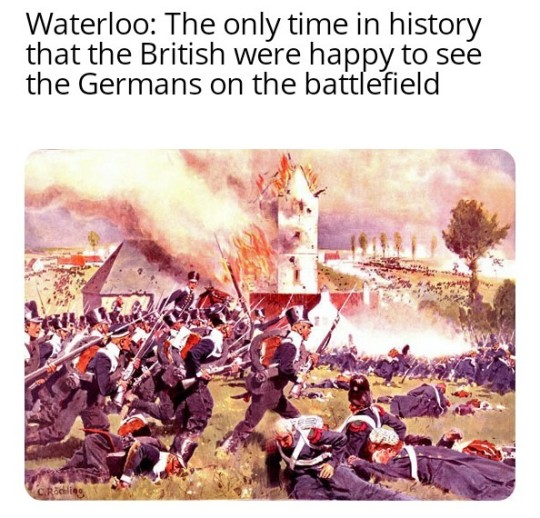
This contrasts deeply with the view William Doyle holds of Napoleon. Doyle described Bonaparte as ‘the Revolution incarnate’ and saw Bonaparte’s humbling of Europe’s other powers, the ‘Ancien Regimes’, as a necessary precondition for the birth of the modern world. Whatever one thinks of Napoleon’s character, his sharp intellect is difficult to deny. Even Paul Schroeder, one of Napoleon’s most scathing critics, who condemned his conduct of foreign policy as a ‘criminal enterprise’ never denied Napoleon’s intellect. Schroder concluded that Bonaparte ‘had an extraordinary capacity for planning, decision making, memory, work, mastery of detail and leadership’. The question of whether Napoleon used his genius for the betterment or the detriment of the world, is the heart of the debate which surrounds him.
France's foremost Napoleonic scholar, Jean Tulard, put forward the thesis that Bonaparte was the architect of modern France. "And I would say also pâtissier [a cake and pastry maker] because of the administrative millefeuille that we inherited." Oddly enough, in North America the multilayered mille-feuille cake is called ‘a napoleon.’ Tulard’s works are essential reading of how French historians have come to tackle the question of Napoleon’s legacy. He takes the view that if Napoleon had not crushed a Royalist rebellion and seized power in 1799, the French monarchy and feudalism would have returned, Tulard has written. "Like Cincinnatus in ancient Rome, Napoleon wanted a dictatorship of public salvation. He gets all the power, and, when the project is finished, he returns to his plough." In the event, the old order was never restored in France. When Louis XVIII became emperor in 1814, he served as a constitutional monarch.
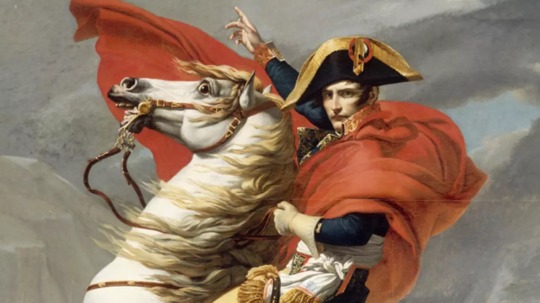
In England, until recently the views on Napoleon have traditionally less charitable and more cynical. Professor Christopher Clark, the notable Cambridge University European historian, has written. "Napoleon was not a French patriot - he was first a Corsican and later an imperial figure, a journey in which he bypassed any deep affiliation with the French nation," Clark believed Napoleon’s relationship with the French Revolution is deeply ambivalent.
Did he stabilise the revolutionary state or shut it down mercilessly? Clark believes Napoleon seems to have done both. Napoleon rejected democracy, he suffocated the representative dimension of politics, and he created a culture of courtly display. A month before crowning himself emperor, Napoleon sought approval for establishing an empire from the French in a plebiscite; 3,572,329 voted in favour, 2,567 against. If that landslide resembles an election in North Korea, well, this was no secret ballot. Each ‘yes’ or ‘no’ was recorded, along with the name and address of the voter. Evidently, an overwhelming majority knew which side their baguette was buttered on.
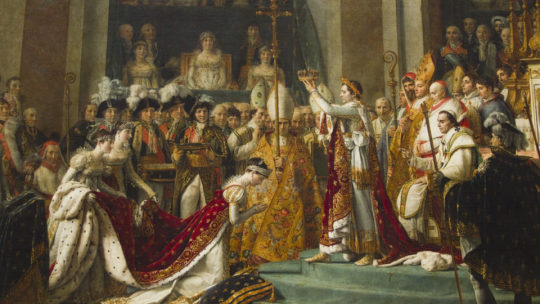
His extravagant coronation in Notre Dame in December 1804 cost 8.5 million francs (€6.5 million or $8.5 million in today's money). He made his brothers, sisters and stepchildren kings, queens, princes and princesses and created a Napoleonic aristocracy numbering 3,500. By any measure, it was a bizarre progression for someone often described as ‘a child of the Revolution.’ By crowning himself emperor, the genuine European kings who surrounded him were not convinced. Always a warrior first, he tried to represent himself as a Caesar, and he wears a Roman toga on the bas-reliefs in his tomb. His coronation crown, a laurel wreath made of gold, sent the same message. His icon, the eagle, was also borrowed from Rome. But Caesar's legitimacy depended on military victories. Ultimately, Napoleon suffered too many defeats.
These days Napoleon the man and his times remain very much in fashion and we are living through something of a new golden age of Napoleonic literature. Those historians who over the past decade or so have had fun denouncing him as the first totalitarian dictator seem to have it all wrong: no angel, to be sure, he ended up doing far more at far less cost than any modern despot. In his widely praised 2014 biography, Napoleon the Great, Andrew Roberts writes: “The ideas that underpin our modern world - meritocracy, equality before the law, property rights, religious toleration, modern secular education, sound finances, and so on - were championed, consolidated, codified and geographically extended by Napoleon. To them he added a rational and efficient local administration, an end to rural banditry, the encouragement of science and the arts, the abolition of feudalism and the greatest codification of laws since the fall of the Roman empire.”
Roberts partly bases his historical judgement on newly released historical documents about Napoleon that were only available in the past decade and has proved to be a boon for all Napoleonic scholars. Newly released 33,000 letters Napoleon wrote that still survive are now used extensively to illustrate the astonishing capacity that Napoleon had for compartmentalising his mind - he laid down the rules for a girls’ boarding school on the eve of the battle of Borodino, for example, and the regulations for Paris’s Comédie-Française while camped in the Kremlin. They also show Napoleon’s extraordinary capacity for micromanaging his empire: he would write to the prefect of Genoa telling him not to allow his mistress into his box at the theatre, and to a corporal of the 13th Line regiment warning him not to drink so much.
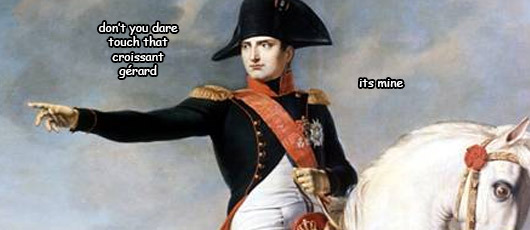
For me to have my own perspective on Napoleon is tough. The problem is that nothing with Napoleon is simple, and almost every aspect of his personality is a maddening paradox. He was a military genius who led disastrous campaigns. He was a liberal progressive who reinstated slavery in the French colonies. And take the French Revolution, which came just before Napoleon’s rise to power, his relationship with the French Revolution is deeply ambivalent. Did he stabilise it or shut it down? I agree with those British and French historians who now believe Napoleon seems to have done both.
On the one hand, Napoleon did bring order to a nation that had been drenched in blood in the years after the Revolution. The French people had endured the crackdown known as the 'Reign of Terror', which saw so many marched to the guillotine, as well as political instability, corruption, riots and general violence. Napoleon’s iron will managed to calm the chaos. But he also rubbished some of the core principles of the Revolution. A nation which had boldly brought down the monarchy had to watch as Napoleon crowned himself Emperor, with more power and pageantry than Louis XVI ever had. He also installed his relatives as royals across Europe, creating a new aristocracy. In the words of French politician and author Lionel Jospin, 'He guaranteed some principles of the Revolution and at the same time, changed its course, finished it and betrayed it.'
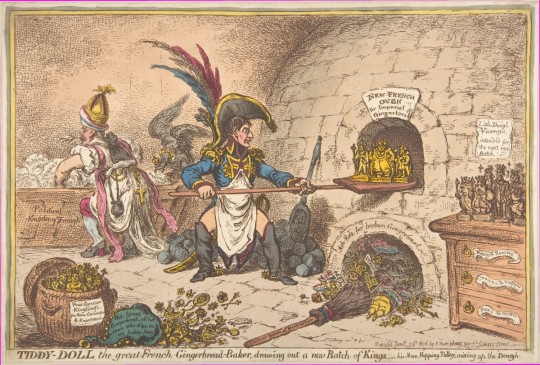
He also had a feared henchman in the form of Joseph Fouché, who ran a secret police network which instilled dread in the population. Napoleon’s spies were everywhere, stifling political opposition. Dozens of newspapers were suppressed or shut down. Books had to be submitted for approval to the Commission of Revision, which sounds like something straight out of George Orwell. Some would argue Hitler and Stalin followed this playbook perfectly. But here come the contradictions. Napoleon also championed education for all, founding a network of schools. He championed the rights of the Jews. In the territories conquered by Napoleon, laws which kept Jews cooped up in ghettos were abolished. 'I will never accept any proposals that will obligate the Jewish people to leave France,' he once said, 'because to me the Jews are the same as any other citizen in our country.'
He also, crucially, developed the Napoleonic Code, a set of laws which replaced the messy, outdated feudal laws that had been used before. The Napoleonic Code clearly laid out civil laws and due processes, establishing a society based on merit and hard work, rather than privilege. It was rolled out far beyond France, and indisputably helped to modernise Europe. While it certainly had its flaws – women were ignored by its reforms, and were essentially regarded as the property of men – the Napoleonic Code is often brandished as the key evidence for Napoleon’s progressive credentials. In the words of historian Andrew Roberts, author of Napoleon the Great, 'the ideas that underpin our modern world… were championed by Napoleon'.
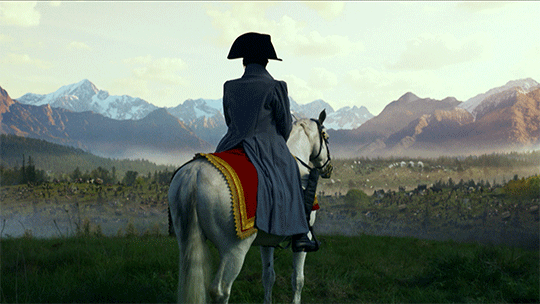
What about Napoleon’s battlefield exploits? If anything earns comparisons with Hitler, it’s Bonaparte’s apparent appetite for conquest. His forces tore down republics across Europe, and plundered works of art, much like the Nazis would later do. A rampant imperialist, Napoleon gleefully grabbed some of the greatest masterpieces of the Renaissance, and allegedly boasted, 'the whole of Rome is in Paris.'
Napoleon has long enjoyed a stellar reputation as a field commander – his capacities as a military strategist, his ability to read a battle, the painstaking detail with which he made sure that he cold muster a larger force than his adversary or took maximum advantage of the lie of the land – these are stuff of the military legend that has built up around him. It is not without its critics, of course, especially among those who have worked intensively on the later imperial campaigns, in the Peninsula, in Russia, or in the final days of the Empire at Waterloo.
Doubts about his judgment, and allegations of rashness, have been raised in the context of some of his victories, too, most notably, perhaps, at Marengo. But overall his reputation remains largely intact, and his military campaigns have been taught in the curricula of military academies from Saint-Cyr to Sandhurst, alongside such great tacticians as Alexander the Great and Hannibal.
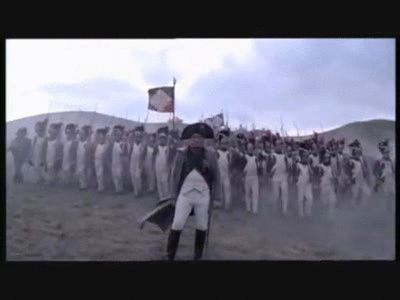
Historians may query his own immodest opinion that his presence on the battlefield was worth an extra forty thousand men to his cause, but it is clear that when he was not present (as he was not for most of the campaign in Spain) the French were wont to struggle. Napoleon understood the value of speed and surprise, but also of structures and loyalties. He reformed the army by introducing the corps system, and he understood military aspirations, rewarding his men with medals and honours; all of which helped ensure that he commanded exceptional levels of personal loyalty from his troops.
Yet, I do find it hard to side with the more staunch defenders of Napoleon who say his reputation as a war monger is to some extent due to British propaganda at the time. They will point out that the Napoleonic Wars, far from being Napoleon’s fault, were just a continuation of previous conflicts that arose thanks to the French Revolution. Napoleon, according to this analysis, inherited a messy situation, and his only real crime was to be very good at defeating enemies on the battlefield. I think that is really pushing things too far. I mean deciding to invade Spain and then Russia were his decisions to invade and conquer.
He was, by any measure, a genius of war. Even his nemesis the Duke of Wellington, when asked who the greatest general of his time was, replied: 'In this age, in past ages, in any age, Napoleon.'
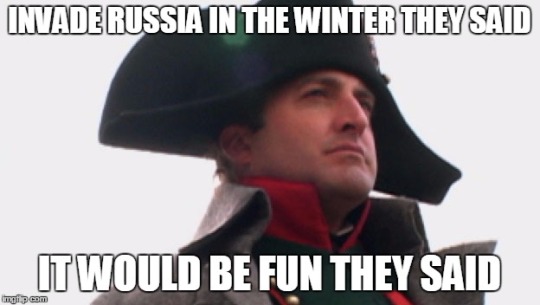
I will qualify all this and agree that Napoleon’s Russian campaign has been rightly held up as a fatal folly which killed so many of his men, but this blunder – epic as it was – should not be compared to Hitler’s wars of evil aggression. Most historians will agree that comparing the two men is horribly flattering to Hitler - a man fuelled by visceral, genocidal hate - and demeaning to Napoleon, who was a product of Enlightenment thinking and left a legacy that in many ways improved Europe.
Napoleon was, of course, no libertarian, and no pluralist. He would tolerate no opposition to his rule, and though it was politicians and civilians who imposed his reforms, the army was never far behind. But comparisons with twentieth-century dictators are well wide of the mark. While he insisted on obedience from those he administered, his ideology was based not on division or hatred, but on administrative efficiency and submission to the law. And the state he believed in remained stubbornly secular.
In Catholic southern Europe, of course, that was not an approach with which it was easy to acquiesce; and disorder, insurgency and partisan attacks can all be counted among the results. But these were principles on which the Emperor would not and could not give ground. If he had beliefs they were not religious or spiritual beliefs, but the secular creed of a man who never forgot that he owed both his military career and his meteoric political rise to the French Revolution, and who never quite abandoned, amidst the monarchical symbolism and the court pomp of the Empire, the republican dreams of his youth. When he claimed, somewhat ambiguously, after the coup of 18 Brumaire that `the Revolution was over’, he almost certainly meant that the principles of 1789 had at last been consummated, and that the continuous cycle of violence of the 1790s could therefore come to an end.
When the Empire was declared in 1804, the wording, again, might seem curious, the French being informed that the `Republic would henceforth be ruled by an Emperor’. Napoleon might be a dictator, but a part at least of him remained a son of the Enlightenment.
The arguments over Napoleon’s status will continue - and that in itself is a testament to the power of one of the most complex figures ever to straddle the world’s stage.
Will the fascination with Napoleon continue for another 200 years?
In France, at least, enthusiasm looks set to diminish. Napoleon and his exploits are scarcely mentioned in French schools anymore. Stéphane Guégan, curator of the Musée d'Orsay in Paris, which, among other First Empire artworks, houses a plaster model of Napoleon dressed as a Roman emperor astride a horse, has described France's fascination with him as ‘a national illness.’ He believes that the people who met him were fascinated by his charm. And today, even the most hostile to Napoleon also face this charm. So there is a difficulty to apprehend the duality of this character. As he wrote, “He was born from the revolution, he extended and finished it, and after 1804 he turns into a despot, a dictator.”
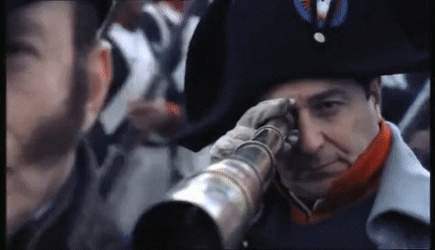
In France, Guégan aptly observes, there is a kind of nostalgia, not for dictatorship but for strong leaders. "Our age is suffering a lack of imagination and political utopia,"
Here I think Guégan is onto something. Napoleon’s stock has always risen or fallen according to the vicissitudes of world events and fortunes of France itself.
In the past, history was the study of great men and women. Today the focus of teaching is on trends, issues and movements. France in 1800 is no longer about Louis XVI and Napoleon Bonaparte. It's about the industrial revolution. Man does not make history. History makes men. Or does it? The study of history makes a mug out of those with such simple ideological driven conceits.
For two hundred years on, the French still cannot agree on whether Napoleon was a hero or a villain as he has swung like a pendulum according to the gravitational pull of historical events and forces.
The question I keep asking of myself and also to French friends with whom I discuss such things is what kind of Napoleon does our generation need?
Thanks for your question.
#question#ask#napoleon#french#french history#history#military history#bonaparte#france#historiography#republic#historians#personal
417 notes
·
View notes
Text
JACOBIN FICTION CONVENTION MEETING 18: DÉSIRÉE (1954)

1. The Introduction
Hello, Citizens and Neighbors! Happy New Year and welcome to the festivities here at the Jacobin Fiction Convention.
As you can see, today is a special day so I chose a topic that both our communities might be interested in so that nobody is left out. I stumbled across this movie while searching for media that tackles Frev and the Napoleonic era at the same time but can also be easily obtained. “Désirée” is available on YouTube in English, so there shouldn’t be an issue with searching it.
Consider this a gift to all of you, as in Russia we give presents for the New Year, not for Christmas.
Before we continue, I would like to dedicate this review to @tairin , @jefflion , @joachimnapoleon , @josefavomjaaga , @saintjustitude , @stalinistqueens , @idieonthishill , @theravenclawrevolutionary , @michel-feuilly , @fountain-ring , @spunkyjacobin , @donpishya , @maggiec70 , @janellefeng , @revolutionary-catboy , @revolution-and-football , @quercusfloreal , @robespapier , @suburbanbeatnik , @aminoscribbles , @edgysaintjust , @taleonne and @elisabeth515 ! Happy New Year!
Anyway, on with the review! Grab some snacks and drinks and enjoy!
2. The Summary
This movie, based on a novel by Annemarie Selinko (I haven’t read it so can’t make any judgements here), tells the story of Désirée Clary from her engagement to Napoleon Bonaparte to her becoming the wife of Marshal Bernadotte to both of them becoming rulers of Sweden.
It starts in 1794 and ends in 1815, so we do indeed have both eras tackled (technically, the Directory counts as Frev, even though our community usually begs to differ), and I find the concept of talking about Désirée Clary’s story interesting.
Let’s take a look at how this idea was executed though, shall we?
3. The Story
Unfortunately, as is the case with many movies that take place over a long time, the pacing issues are apparent and can really make things confusing due to multiple time skips, especially for those who don’t dabble in our respective eras at all and don’t know most of the people involved.
However, I do like the fact that, for an Anglophone movie, it doesn’t really have that much propaganda related to Frev.
No blood on the streets and no evil Robespierre. Désirée’s brother does say in the beginning that these days even generals are suspects, but this can be brushed off as his personal bias and isn’t that serious when it comes to propaganda.
Napoleon isn’t glorified too much either but, thank goodness, there’s no “England swoops in to save the day from devil!Napoleon” narrative either, so there’s that. Probably because the movie is American...
I also kind of like the complicated relationship between Désirée and Napoleon, although I usually hated the dynamics between exes in movies. Here the awkwardness and some possible lingering feelings, at least in my opinion, are shown in a bit more of a realistic way, so that’s good. It can be cheesy, but not too much.
4. The Characters
What isn’t good, however, is Désirée as a character. She whines, complains and slams doors like a stereotypical teenage brat when things don’t go her way and she can be really petty. For example, she deliberately stains Josephine’s dress by throwing a glass of champagne at her! I get that she is jealous and upset but to me that was not an excuse. Josephine could’ve gotten hurt! They do reconcile and Désirée does have some sympathetic moments, but I still hated her character.
As for Josephine de Beauharnais herself, for once she isn’t portrayed in a negative light. She doesn’t hold grudges against Désirée, is genuinely upset that she can’t have a child with Napoleon and heartbroken that he is divorcing her. She reconciled with Désirée and apologized to her, even though she isn’t really at fault that Napoleon called off his engagement with Désirée, at least not in this movie.
I didn’t like Napoleon. He is cold, aloof, too ambitious from the get go and thinks he is never at fault. Not a good impression, especially considering the fact that I really dislike the real Napoleon too, so maybe my personal bias played into this. I don’t know... That said, he is shown to have good intentions and wishing for peace via his conquest of Europe, so he isn’t all bad.
Bernadotte starts out a bit too pushy with his affection but later he tones that down. He readily accepts that, by becoming the heir to the Swedish throne, he will become a Lutheran and change his nationality. He is also concerned about his adopted country and his subjects first and foremost, even when Napoleon calls him a traitor for this.
Talleyrand, Theresia Tallien, F**ché and Napoleon’s sisters make cameos and, not surprisingly, the sisters are portrayed as complete bitches. Apparently that’s typical.
Oscar, Désirée’s son, only has a minor role but he is pretty adorable here.
Queen Hedwig is stern with Désirée, but she is fair and is simply trying to teach the future queen how to behave herself at court.
Julie Clary is a bit strict, but I find her dynamic with Désirée to be pretty realistic and sweet.
Okay, moving on!
5. The Acting
I think Marlon Brando as Napoleon isn’t the best casting choice. I’m not particularly familiar with his works as an actor but something just feels...off. I don’t know how to describe it, perhaps it’s just the fact that his (very particular) voice sounds too jarring for Napoleon.
Jean Simmons (Désirée) is much better, but she has a tendency to overact in her character’s hysterical scenes, which only added to my dislike of Désirée as a character.
The other actors are awesome though, especially Merle Oberon (Josephine). She just had that grace and wisdom to her in the movie.
7. The Setting
Overall, pretty good, although the hairstyles aren’t always historically accurate, but that’s a minor complaint.
The backgrounds and the costumes are much better.
8. The Conclusion
All in all, while I respect the attempt made, I don’t think it’s that good of a movie. Definitely not bad for me as I enjoyed some aspects of it but more like the kind of movie to watch once when you really need to kill time.
I can’t pass judgment on accuracy but, regardless, I suggest you watch it with your brains turned on. Maybe some of you will like it more than I did.
With that, let us conclude the last (only for this year) meeting of the Jacobin Fiction Convention. Other reviews are coming your way in the new year and I really hope you enjoy the holidays.
To my fellow Revolutionaries, may the next year being us all Liberty, Equality and Fraternity!
To the Neighbors, here’s to a fruitful collaboration between our communities as I believe that we can learn a lot from each other. I certainly have learned a lot!
Cheers and Happy New Year!🥂
- Citizen Green Pixel
#french revolution#frev#history#frev art#robespierre#jacobin fiction convention#obscure frev media#desiree 1954#napoleonic media#napoleonic art#napoleonic movies#napoleon bonaparte#joseph bonaparte#augustin robespierre#desiree clary#jean baptiste bernadotte#marshal bernadotte#julie clary#talleyrand#theresia tallien#i still refuse to make a fouche tag#frevandrest still refuses to make a fouché tag and i applaud that#fouché tw#fouché cw#movie review#frev movies#frev media#la directoire
45 notes
·
View notes
Note
Did Wellesley consider himself Irish? I know he was born there but according to wikipedia (I'm still new to a lot of this and I'm learning more about napoleonic era) he was anglo-irish. I'm just not sure of the exact implications of that label. Thank you!
Oh don't worry about asking! This is a complicated subject - especially if you're coming at it new with little background on the relationship (aha) between Ireland and England.
Did Wellesley consider himself Irish? No. He did not. He was born there—but to English (i.e. Anglo) family who didn't identify with the Irish (at all).
Anglo-Irish are descendants of [mostly] Protestant English who came to Ireland to reinforce English control i.e. the Protestant Ascendency. And Wellesley's family was part of this colonization/subjugation of Ireland (begun formally in the 17th century, but it had been happening on/off before that). His family was part of the aforementioned Protestant Ascendency which was the political/economic/social/religious control of Ireland by the English/Anglo-Irish who made up only a very small minority of landowners/general population.
Arthur himself, and his family, identified as British (or, to a lesser extent, English). And the distinction is important! Being British, and saying that whilst holding positions of control and power in Ireland, reinforced that Ireland is/was part of the Kingdom of Great Britain, which obviously there was a lot of dissent and, uh, opposition and opinions about by the Irish themselves. (Back then and still to this day.)
When Arthur was born in 1769, in addition to the Penal Laws and other regulations and Acts, Ireland was under the The Declaratory Act, 1719 which legislated that the king and British parliament had "full power and authority to make laws and statutes of sufficient validity to bind the Kingdom and people of Ireland." It also legislated that the Irish House of Lords had no power to hear appeals from Irish courts, among other various items.
This changed in 1783 so that the British parliament gave up the right to legislate for Ireland, declaring that appeals from Irish courts couldn't be heard in courts in Great Britain. Which like...who controlled the courts and legal apparatus in Ireland at this time? The Anglo-Irish.
Then there was the Act of Union, 1800 which formally unified the kingdoms of Ireland and Great Britain to create the United Kingdom of Great Britain and Ireland. This made the 1783 Act nul and void and effectively made Ireland subject to British rule (among a tonne of other legal implications that I do not have the authority to speak to with any confidence at all).
Please, please note that this is not my area of expertise and these is very much a broad brush-stroke/nutshell summary of the situation. It's incredibly complicated and worthy of deep engagement on its own. The treatment of Ireland and the Irish by the British was horrific and the complexities of identity—civic, national, personal, religious—are hugely nuanced and I am definitely not able to do them even an iota of justice. The Irish, and historians of this particular subject, are much better placed than me.
Anyway - the long and short is no, Wellesley would have identified as British, not Irish. His family was part of the long colonization/subjugation and attempted genocide of the Irish by the English. It's a very complex subject but there are some good resources out there if you're interested in learning more!
I hope this helps!
(And anyone who is more fluent on this matter, please correct anything I got wrong. My knowledge is surface level as it was never my area of specialization in ye olde academic past-life.)
#history#ask#anon#reply#arthur wellesley#duke of wellington#19th century#18th century#To Wellesley's credit his term as PM was when catholic emancipation occurred but I mean that's really thanks to O'Donnell#O'Connell* christ autocorrect#Wellesley was also somewhat sympathetic to the Irish people - but he would not have identified with them
6 notes
·
View notes
Note
That’s the kind of attitude I really fail to understand: You must not be interested in this era / watch that movie / read that novel ... because XY in it is bad.
So? Welcome to life, folks.
As to Napoleon - I keep being astonished about him getting this “special treatment”. For so many people, his name seems to be exclusively linked to death and war. Do these people have the same attitude about Caesar, Alexander, Charlemagne, William the Conqueror, Friedrich II., Catherine etc.? Do they cringe - like I do - when somebody like Louis XIV or Louis XV are mostly linked to Versailles, dances, court intrigues and mistresses, while the (utterly needless) wars they fought and the suffering they brought to foreign countries are completely left out of the picture?
Napoleon was a proto fascist pig you're sick for obsessing over him
Cool thanks! 🫡
29 notes
·
View notes
Text
sorry mutuals this has to be the longest reaction post i have ever done in like 7 years of tumblr sldkjfklsd this episode was just A Lot
-weekly butthurt recall that chibnall beat me in using the faiths in a 13 doctor story and now when i do it in next year in my xena crossover is not gonna seen as clever. damn u chibnall. -”bel’s story” omg what is this.... high concept realness??? im in. -my meta-analysis of "flux is a metaphor for climate change/enviromeltal catastrophe" gets stronger every episode. -SEXU BRONZE DALEKS. love those fuckers. bless them for finally iguring out floating. rip any stairs or swamps that get in their path. -even more irl enviromental collapse parlallels: the fear over right neo nazi factions rising in europe rn. -"my love" is she gay? -these blue time-bees reminds me of the thingies from father's day. miss those cute guys. they never showed up again ): -there's so much color everywhere this season... who knew the end of the world would be so pretty... -the little echo effect of swarm fingers snapping in the recap... ooh yes -the day going to black effect ohhh yesss -im watching the audiodescribed version for the first time and i's really interesting to be honest! im picking up a lot of new vocabulary for the weird things that they describe on screen lol -ooooooohhhhhhh pov of the doctor man!!! im loving this. i have read a lot of fics of people trying to do this, specially this era, and it feels very satisfying how the show is confirming that “high speed” thinking. -”leap and the net will appear, that’s what john buroughs told me” we love 1 little bitch namedropping even in monologue / just to show off to the audience she doesn’t know is there.
-(yes in this case “little bitch” is gender-neutral)
-this effect of the other 3 “falling” into the time storm looked a bit silly tbh dskljfkl and i love jodie but her green-screen acting in this bit.... dsklfjklds well... let’s just say she’s had better moments. -the eu feelings intensify -WHAT IS HAPPENING -I LOVE THIS -INFERNO REALNESS??? -jodie is so beautiful -seriously what is happening -diana get away from him he has a dog husband to come back to >:( -he's so smooth tho i love him. -"you are not ugliest fella in this city" oh no they are cute ): -i hate liking dan this much. how dare this show make me root for someone male straight and white AGAIN. -ohh and his parallels to the doctor’s personality intensify... - -THASMIN REGULAR PEOPLE AU. -ok not quite but i got really excited for a sec sdljkf -all this casual banter is killing me what are ya'll saying stop speaking so fast. there’s foreigners in the audience. -dan/diane x thasmin parallels -lol this constant "diverse casting for cops" is sure a thing huh. i see through u chibs/bbcs. #acab -the sfx artists are on fire this episode (i hope they got paid well and didn’t have crunch time....) -Right. if all time is bleeding through and things are like, all over the place..., it actually makes a lot of sense lore-wise that weeping angels are over-powered and feasting on everything. it’s not seeming like a pointless bringing of an old monster for fanservice, but actually serves the story a lot if u think about it.good stuff! -i want all these aus omg -mandip in napoleonic era sicfi outfits is doing things to me -wow "grant serpent" doesn't sounds ominous and evil at all vinder. def an organization u can trust. -jodie in black is doing thins to me -NITRO NINE TIME -Ace should have patented that formula smh -13 referring to vinder as "that other lad" cos she doesn't know him yet lollll -once you get the "trick" of how this episode / serial work’s structure works is a little less impressive, but i’m still having fun w/ it and the actual content of the flashbacks. -time storms ldskfjlk THIRTEEN QUICK THROW THIS ALARM CLOCK!!! THE PAST IS COMING OUT OF HER EAR...... -(do ppl still remember that meme? i should find it again man, it was so good slkdjf) -the art desiggggnnnHhhhnggggg -also: something about pyramids and platonic solids and greek mythology./alchemy.. maybe they should have put a dodecahetron instead? pyramds represent fire after all, not the ether/time... (not that they dont look cool but, they could have continued the greek theme!) -RUTH RUTH RUTHTHTRFJKHKJDSLHFLSKJDHFLSDJKHFLSKDJHFLKSJDHFLKJSDHFLKSJDHFLKJSDHF -¨this is my past" HOLY SHIT I JUST GOT THE TIME LOOP IM- THAT'S WHY WE DIDNT HAVE 13'S IN A FLASHBACK IT'S BECAUSE THIS IS HER FLASHBACK AHHH -chibnall have my babies -the absolute disgust when ruth looks at thirteen as realizes she is her reflection.... peak In-Character doctor mood. ("i’m not the woman i used to be, thank god") -(look all i want is 20009809 low-stake stories about thirteen/ruth having a fun two/three // seven/five mutual-repulsion dynamic... is that really asking too much, EU/fic writers. i never asked you for anything) -"pretty smart for a dog" -no but memes aside this is really impressive... like, it's very sophisticated plotting, and the weaving of lore is great... but it's still all about character building for our 4 (5 ) heroes. it’s nice that chibnall keeps that in mind. -that said... this episode is kicking my ESL ass... my brain is spinning trying to keep up ToT -OHHH man. so much backstory. -lol ruth is so done even when she is helping her future self. i love them so much -"you fucked up, me." -dallying. -OHH THE CAPITALIST PIGS IN THEIR FUNNY HATS ARE BACK - im digging the like, subtle horror-vibe of this. the cackling was pretty creepy dslkjf. -honestly this serial is also a great tourist ad for liverpool. just look at that waterfront! woah -this ghostly effect is pretty nice -BEL THE LUPARI ARE FINE DONT WORRY (the retroactive storytelling!!!... chef’s kiss) -the subtle commentary of these alien fuckers (meritocrat cybermen, nazi daleks, supremacist warmonger sontarans, etc) having to be fought even at the end of the world is really y cool. idk what to make of it yet political-messaging-wise but i dig it lol something like... how we have to fight until the end and shit and we have to struggle as long as we are alive and... that's fine... good stuff worth thinking about. -hey there not-brax. -"challenges are temporary, life is constant" -is she a past / future companion? like melanie bush in trial of a time lord? -vinder's story makes me want to replay SW: KOTOR 1+2 so bad. The aesthetic/vibe of this mission is so on-point w/ that game... -ok i think the specific primal horror this story is tapping into is like..., being at work and not knowing what's happening that day or missing an assignment and school lol -SONYA SONYA SONYA SONYA SONYA -bless this confirming a headcanon i didn't even knew i had that, not only is yaz not into any kind of "modern music", she also doesn't like "video-games." ( i love 1 boring-ass bi-mess with no social life). -also im losing my mind at fake-gamer-gurl sonya. -13 is such a sassy asshole to yaz even when she's helping her lol im sorry guys but this is every entertaining dslkjfsdklfj -noooo!!! this was my thing ... i was going to have thirteen take the place of the fates dammit again chibnall ): im gonna have to rewrite the climax of part 3 aghhslkdjf -future memories... eyes emoji -omg omg omg yaz picking up things!! i love you yaz u are so smart even if 13 doesnt see it. -this episode reminds me of how much dw deserves a proper videogame. -ooh they took the "image of an angel is angel" thing! i like. -CLEVER YAZ -"do you want me to be single forever?" i died -"PROTECT YAZ.... and that lad." -division dark-side thirteen/ruth are doing things to me. -"do not underestimate me" put me down as horny *and* confused :D -man division!era swarm was a lot less glittery... it’s like the meta of how each master is very much designed as a foil for "their" doctor lol -also swarm gives tim-shaw such a kicking. -hmm... ‘the passenger’ gives me watcher vibes... -the eu-vibes of this adventure intensifies. -there's so much lore and funky wilderness-era dialogue happening here and it's all nonsense scientifically ... and i love it. -”TIME SHALL NEVER SURRENDER TO SPACE” -which other show gives you dialogue like this honestly? i’ll wait -cartmell is weeping for not coming up with this. -thirteen/ruth using the “forbidden form” of multiverse tech... ohhh yes -not!dan with karvanista laser’s axe :) dogtp -"YOU AND ME TOGETHER" that’s gay doc -bell is so cute --- she is so gonna die isn’t she ): -i have no idea what ruth!thirteen did but it sure seemed epic, clever and....... ruthless (eyy) -ohh another bit of retroactive storytelling here... now we know how swarm got captured! -”WE SHALL NOT BE CONTAINED” swarm is such a hamm. i love them. nimon serial energy tbh. -i appreciate the continuity of the time storm design being the same as the time vortex this era (as per the opening credits) -also the continuity of the faiths being gold! aka the screwdriver aka the current tardis crysals aka the logo aka thirteen's signature color. we love meaningful and consistent color usage *clap cla*. -”CONVERT THIS CU*Ts” i love her. -7 billion cybermen... are these the parallel earth OG cybermen? from hartnell era? hence the same population as earth? -i love the message of this story: all these civs striving for conquering things-... but there's no point to conquering because the earth/world/universe is all gonna end anyway. good stuff. -*blasts the cyber with a laser* "Love is the only mission.idiot.“ wtf i LOVE her. -(also i rewatched one of my favorite fiive/tegan scenes after the bit with and it was relevant to this moment!) -”stop te recording” ohh shit the guy is gonna betray vinder / do something shady. -i liked the continuity of "recording" motifs connecting the previous bell scene and this storyline. -ppl were right last week man i mean "fray samport"?? these names are such classic who bs lolll -honestly props to chibnall for making me so invested in all these side-characters. vinder u deserve the world son not these corrupt space napoleonic fuckers. -vinder you are an idiot though dslkjf if someone tells you "have you spoken to your family about any of this?" you cant trust them it’s obviously a threat. -idiot slkfjkl -segun has been pretty chill this episode tbh. i noticed a couple moments that could have done with more music... -maybe it's better tho it might have been too much sensory overload skldjf -YESSS DOGGIE -OHhh ho fuck i love this. the temptation of the doctor to see everything... even more torture bc it is yet another “selfish” choice they aren’t even allowed to make... ugh poor bb ): -”WHO ARE YOU??” i love flux. what is anything. who are we? who are you, tumblr user? we don’t really know. -"lost causes are my specialty" <3 <3 <3 -so “THE RAVEGERS” azure and swarm got introduced by something? meaning there’s a bigger fish behind all this? valeyard? -is she the master? romana? the rani?????? SUSAN??????¡¡¡¡ -"EVERYTHING HAS ITS TIME" ahh my favourite rtd themeeee!!!!! - also again..., climate change fightin' vibes -ahh frog universe vibes. -"it was made. it was placed" more: "humands" didn't cause climate collapse some very powerful people that resist systemic change did. -who knows who this old lady is but she is calling out the doc hypocrisy so obviously, we tan :) -"You dont understand anything" maybe if you told her things... jackass....??? -man im so into this arc. so good. -ohhh--- the first few chords of thirteen's theme in this scene suddenly interrupted with the "this is bad happenings" music... i see u segun. i see u. -"WE'RE GONNA STOP YOU" (crickes) dan i love you you absolute madlad. -dude the constant parallels and all the “romantic love beating the odds” framing and thirteen just not getting it and yaz subtle side glance... dare i say.... #thasminendgame. -swarm has a little pig nose. -aghh the reflection thing coming back again!! cinematographyyy -hehe another "vinder as yaz's companion" moment. so cute. -dan has known the doctor for like 2 day but it’s like he has speed-run through an entire companion arc lol -thirteen like HOW DARE YOU ASK ME THINGS dsslkfjlksd ass!!! -i feel like yaz might die / sacrifice herself by connecting some dots before the doctor and thirteen is gonna realize it only too late and she's gonna feel like a complete idiot for the rest of her fourteenth incarnation. -(sigh of relief) ohhhh god bless. vinder isnt yaz's endgame dslfjsdkl good for him vinder/belll otp let them reunite and have a million little tamagotchis :) i do not have an ulterior agenda for this :)))) -”and YOUR URBORN CHILD AS WELLLLL” slkdjfkld this is so cheesy i love it. -oh no ): i dont like where this is going.... -omg i love this cheesy grease summer loving effect... what is doctor who if not intellect and ROMANCE over brute force and cynicism? -if im gay and you are gay then who is that angel piloting this plane
#im just#ahhhhhhhhhhhhhhhhhhhhhhhhhhhhhhh#dw#flux#dw spoilers#took me like 3 hours to get through this one sdlkfjklsdjfklsdjf
12 notes
·
View notes
Photo
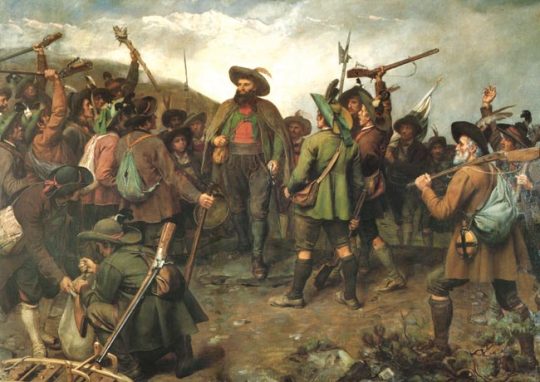
I still owe @northernmariette a post about the Tyrolean uprising of 1809. Let me state at the very first that, being a Bavarian and mostly studying sources close to the Wittelsbach family, I'm the last person who should comment on this. So, if there's any Austrian, preferably Tyrolean, here who would like to jump in, please feel free to do so. This is one of those events where legend has overpowered history; the figure of Andreas Hofer in particular during the last two centuries has been (re)interpreted and (ab)used by pretty much every political side, and he has been judged everything from a heroic martyr to an Alpine version of the Taliban. (No, that latter term did not come from Bavaria!)
I may in the past have talked »a little« already about this incident:
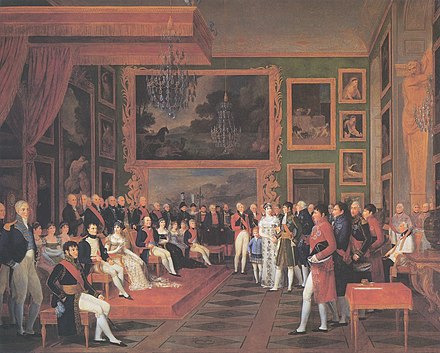
The marriage between Eugène de Beauharnais and Auguste von Bayern. Yes, I'm pretty sure that topic did already come up before. We can take it from there, because one of the things that Napoleon dangled in front of Max Joseph's nose in order to make him agree to this marriage was - Tyrol. He kept his word. After the war of 1805, Austria had to cede Tyrol to Bavaria.
And with that, Max Joseph had bit off a lot more than he could chew. Tyrol, a mountainous region including many Alpine passes connecting Bavaria and Northern Italy, was, except for its capital Innsbruck, a very rural, highly conservative and fanatically catholic region (that catholicism included plenty of regional and local customs and superstitions), plus they had, under Austrian rule, enjoyed certain special laws and law exemptions that I understand emperor Joseph II already had desperately tried - and failed - to get rid of. Now, after Bavaria took over, Tyrol as a region was dissolved into a couple of counties, to be governed like the rest of Bavaria, and there were no more extras for Tyroleans. In particular, this concerned conscription. Tyroleans under Austrian rule had been exempt from serving in the regular Austrian army, but were supposed to form militias and defend their mountains on their own. That, too, ended under Bavarian rule.
Tyrol also was among the first regions to seriously feel the effect of economic decline caused by French hegemony and Napoleon's policies. Situated in the mountains, a huge portion of its wealth came through trade routes, that after 1806 gradually declined: The usual trading partner, the vast Habsburg empire, was shut off for the Tyroleans, and much smaller Bavaria simply could not provide the same options. Plus, a large part of international trade simply disappeared after Napoleon decreed the continental system.
(In the Bavarians's defense, they did see the problem but were unable (and in some points simply unwilling) to solve it. When Max Joseph in December 1807 took his whole family to Italy in order to meet Napoleon there, he did not only want to see his first grand-child and take the queen shopping and sightseeing in Venice (but that, too!) but also to negotiate a trade deal with Napoleon's kingdom of Italy (conveniently governed by Max's son-in-law, so basically a family business). However, at this point Napoleon had already lost interest in all trade that did not directly benefit France.)
And then there were in Tyrol all the additional holidays and pilgrimages for obscure local saints and lots of local customs regarding religious ceremonies, all the tiny monasteries and hermitages and wandering monks peope considered a regular part of true catholicism, all of which was gone with the stroke of a pen. Montgelas, Bavaria's de facto prime minister, had grown up in the era of enlightenment and did not take kindly to all kind of religious superstition. Needless to say, the bavarian officials in Tyrol and their revolutionary French friends were seen by locals as harbingers of the Antichrist, after the first three years of Bavarian rule already.
Austria's renewed interest in war in late 1808 was mostly caused by anxiety. After having seen how Napoleon had deposed of the Spanish Bourbons, the whole of Europe panicked, counted Napoleon's siblings and marshals and wondered how many countries were still needed for them and who would be dethroned next. It was archduke Johann (= Jean = John), very interested in liberal thinking, who came up with the idea to start a people's revolt in Tyrol, where people were extremely pissed at their new superiors already. The idea caused lots of controversy at the Austrian court. Calling the people to rise up against their legitimate ruler ... one just does not do that among monarchs. I guess it was considered a serious breach of etiquette. However, times were desperate. Johann was allowed to secretely conspire with some Tyroleans who had come to Vienna, among them famous Andreas Hofer.
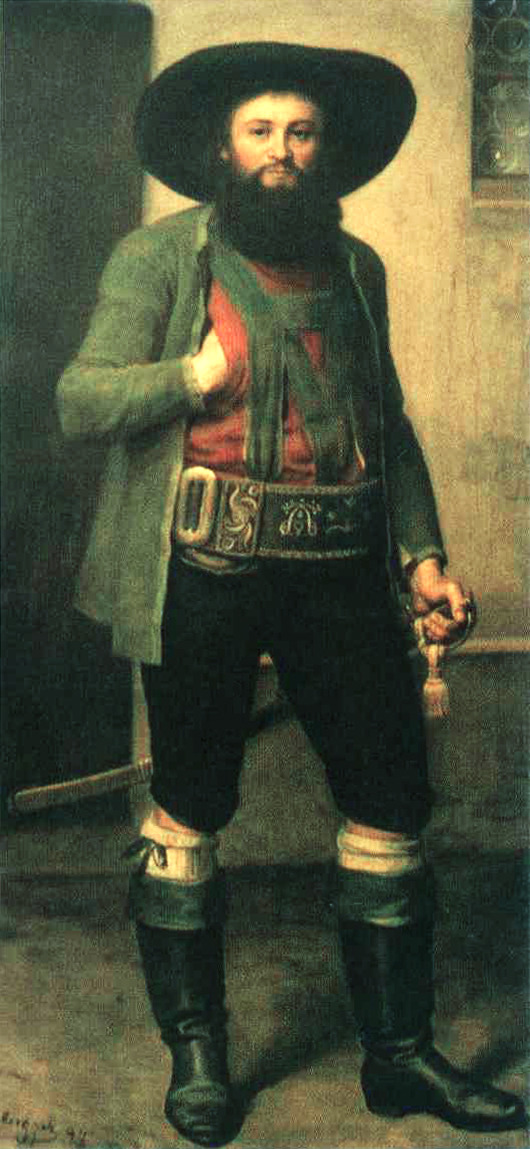
Hofer was a well-respected trader and owner of an inn in the Alpes, also a devout catholic, and other than that apparently a friendly, honest and simple guy. Even his enemies agreed that he personally had done nothing dishonourable throughout the uprising, in a war that often saw similar brutalities as the guerilla war in Spain.
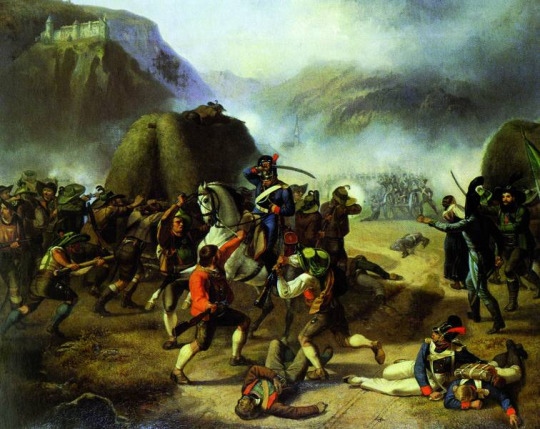
The Tyrolean uprising started at the same time as archduke Karl/Charles leading the Austrian main army into Bavaria and his brother Johann taking a second army into Italy in April 1809 (that latter army was the one that defeated Eugène's forces at Sacile), effectively hampering French/Bavarian communications. Austrian troops also marched in. The small Bavarian force at Innsbruck had to capitulate. Austrians and Tyroleans occupied the region and managed to kick out all remaining Bavarian troops and even to successfully raid parts of the region north of the Alps.
As for the course of that war, I'll just refer to the Wikipedia page. Basically, it was a back and forth, back and forth. When the Bavarians proved unable (and in some cases, like that of crown prince Ludwig, unwilling) to quench the revolt, Napoleon sent in French commanders, in particular marshal Lefebvre, in order to restore order. Lefebvre retook Innsbruck, the Tyrolean rebels retreated onto the mountains and into the valleys, and as soon as things seemed to have calmed down and parts of the troops had left, they returned and renewed the fight. There were no less than three battles at Bergisel (mountain at Innsbruck), all won by the rebels who time after time succeeded in reconquering town and country from the French, Bavarian and Rhinebund troops subsequently called in. After defeating Lefebvre himself in mid-August 1809, Andreas Hofer ruled for several months as a sort of unofficial governor in Innsbruck (and was soon enough out of his wits with that task but that’s a different story).
Meanwhile, in Austria, the battle of Wagram (July 6) had led to the armistice of Znaim. History books usually just state that the battle of Wagram decided the War of the Fifth Coalition but that’s not quite true. It took another three months until peace was negotiated, and emperor Franz opposed the negotiations for quite some time. During that time the Tyroleans were encouraged to continue their resistance; Hofer even received a golden necklace and a handwritten letter from his emperor, thanking him for his service and loyalty und promising that emperor Franz would never ever give up Tyrol to those godless Bavarian and French enemies!
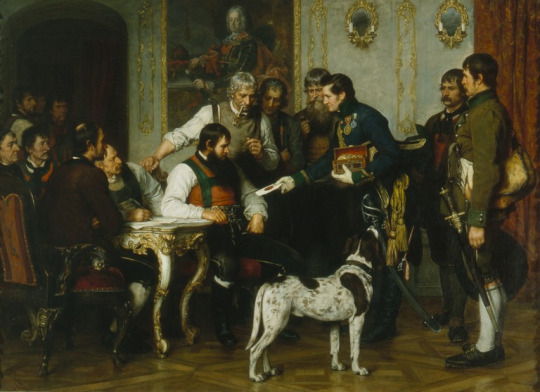
It was for that reason that, when in mid-October the Peace of Schönbrunn once more gave Tyrol to the godless Bavarian and French enemies, nobody in Tyrol wanted to believe it. And so they didn’t. »Fake news!« Eugène, in charge of the southern half of the Tyrolean mess since November, had a proclamation published that promised amnesty to all those who laid down their weapons and threatened dire consequences to all who didn’t. Useless. The Tyroleans had their own newspaper in Innsbruck after all, and that paper had stated long ago that Napoleon had lost the war, been killed in a battle, fled to Paris on foot, caught the plague and whatever dark fate the writers could come up with. Eugène, as to him, had drowned in the Danube, if I remember correctly. (Those newspapers are a fun read!) Anyway, that guy surely was in no position to publish any proclamations right now, the Tyroleans knew that much!
The French and Bavarian troops now moved into Tyrol in force, while the Tyroleans, oblivious to the fact that the war was long over, stubbornly continued to fight.
It actually needed an aide-de-camp of Eugène’s, on his way north to deliver letters to king Max Joseph and crown prince Ludwig, to be taken prisoner by some rebels, to finally change that. A priest who a) could read and b) spoke French (both rare among the rebel forces) understood the importance of these letters that all spoke of the peace as a fact, and managed to convince Hofer of their authenticity. Hofer, at this point truely worn-out by the useless fight and the responsibility that had been burdened on him and probably doing some heavy drinking, sent this priest and one of his officers to Eugène in order to conduct an armistice. (That was the occasion when Eugène’s entourage had so much fun listening to the priest’s tales of the latest Bergisel battle.)
However, while these negotiations were going on, some of the other rebel leaders managed to convince Hofer to go back on his word and to continue the fight, mostly using religion as an argument. So there was a fourth battle at Bergisel, but by now, most rebels had indeed convinced themselves that further resistance was useless, and those who still showed up were easily beaten. The Tyrolean uprising was mostly over. Hofer himself was not even at the last battle, by then he must have been a broken man.
He fled, mid-winter, up into a small mountain cabin, where he hid until January, when somebody told French authorities of his whereabouts. He was captured, brought to Mantua, and shot on explicit orders by Napoleon in February.
Tyrol, by the way, was then divided, the (more lucrative) southern half added to the kingdom of Italy, while the northern half was returned to Bavaria (it returned to Austria after Napoleon’s fall, and I don’t think the Bavarians, as much as they had wanted the region before, at this point still held many regrets 😜).
15 notes
·
View notes